Self Portrait of William Mortensen and Courtney Crawford, 1926
It is an honor to share with you the following works by the great William Mortensen. Many of the following images have not been shown publicly before and were taken from the original prints exclusively for Monster Brains by Stephen Romano. Also included here are original masks designed by Mortensen that were photographed by Stephen from his personal collection. He has provided a wealth of incredibly high resolution and beautiful copies of many of William Mortensen's greatest works that I share with you below, enjoy.
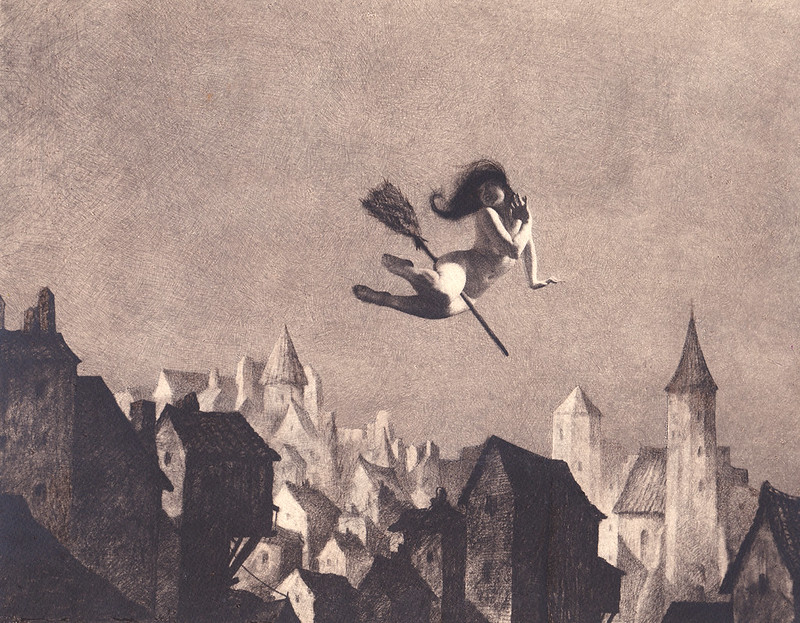 Ho Ho Off To The Sabboth, 1926
Ho Ho Off To The Sabboth, 1926
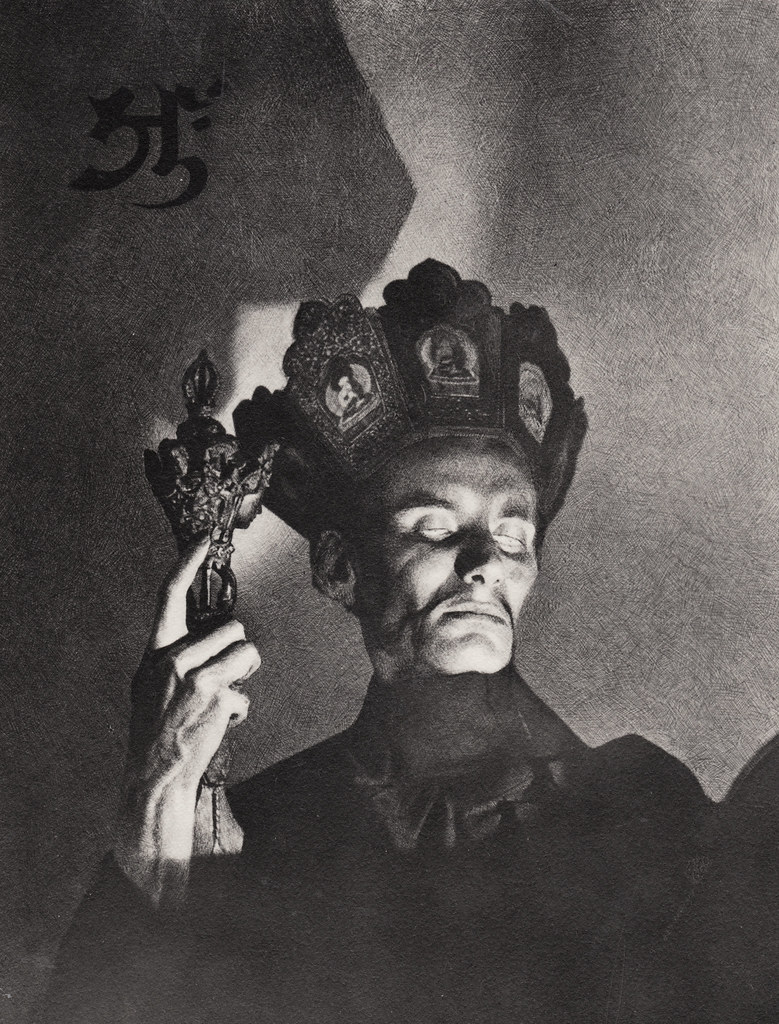 A Tantric Priest, 1930
A Tantric Priest, 1930
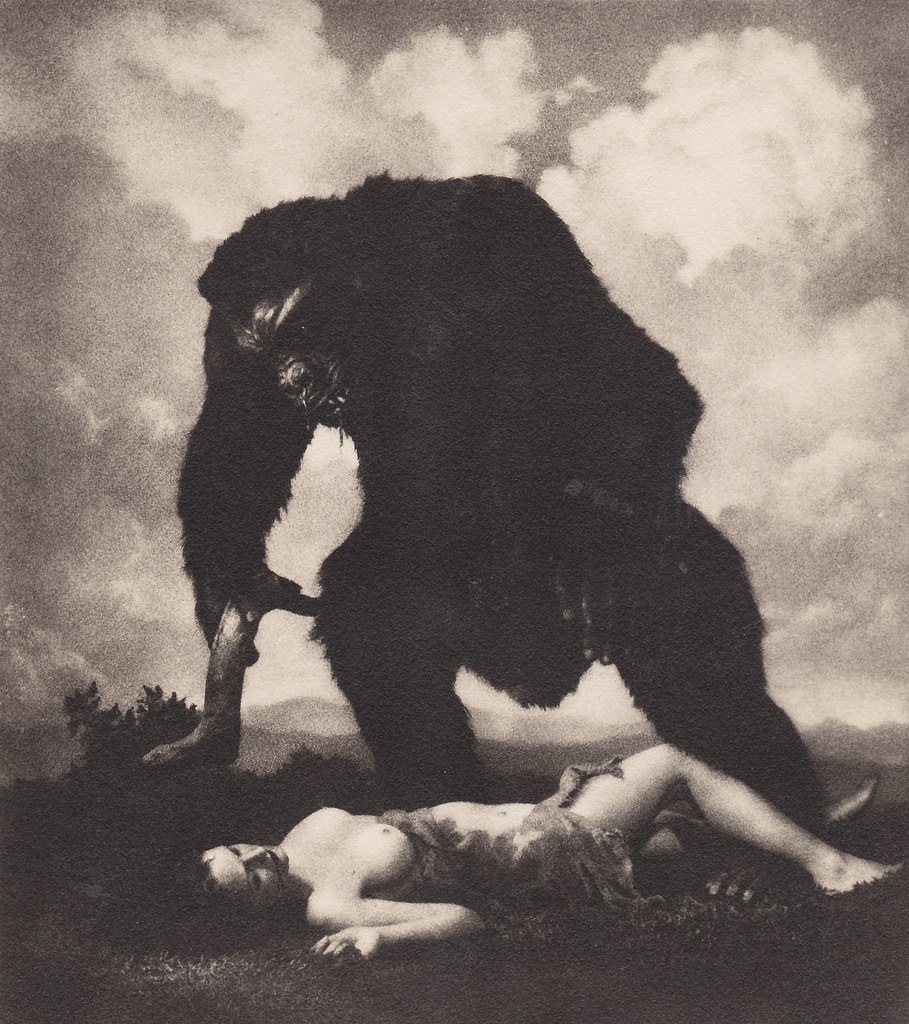 L'amour, 1930
L'amour, 1930
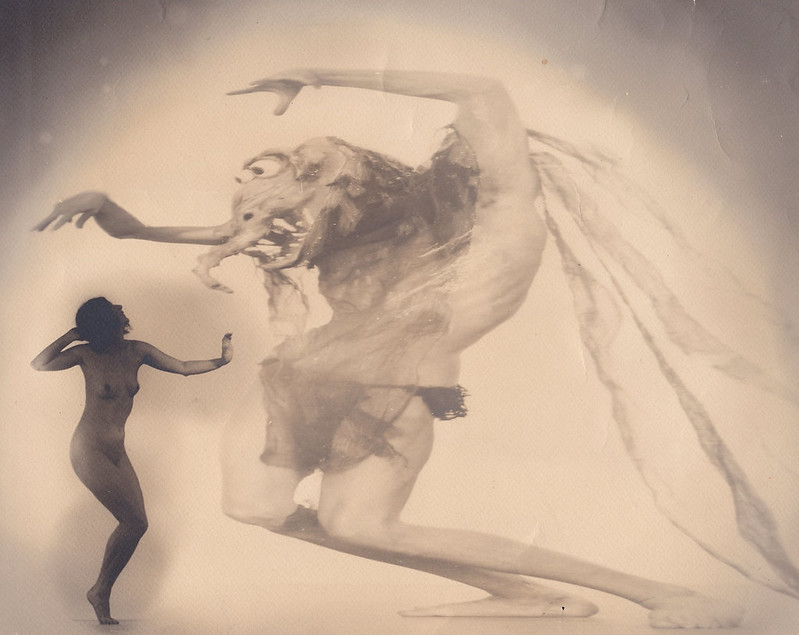 The Incubus, 1924 - 26
The Incubus, 1924 - 26
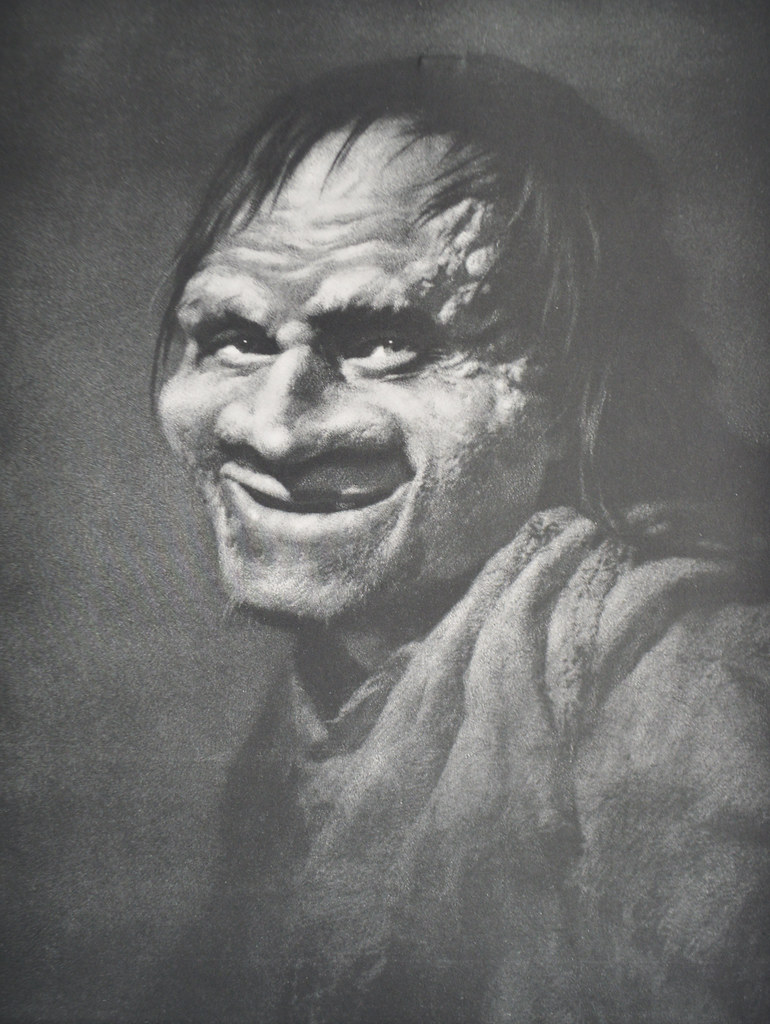 Belphegor, 1930
Belphegor, 1930
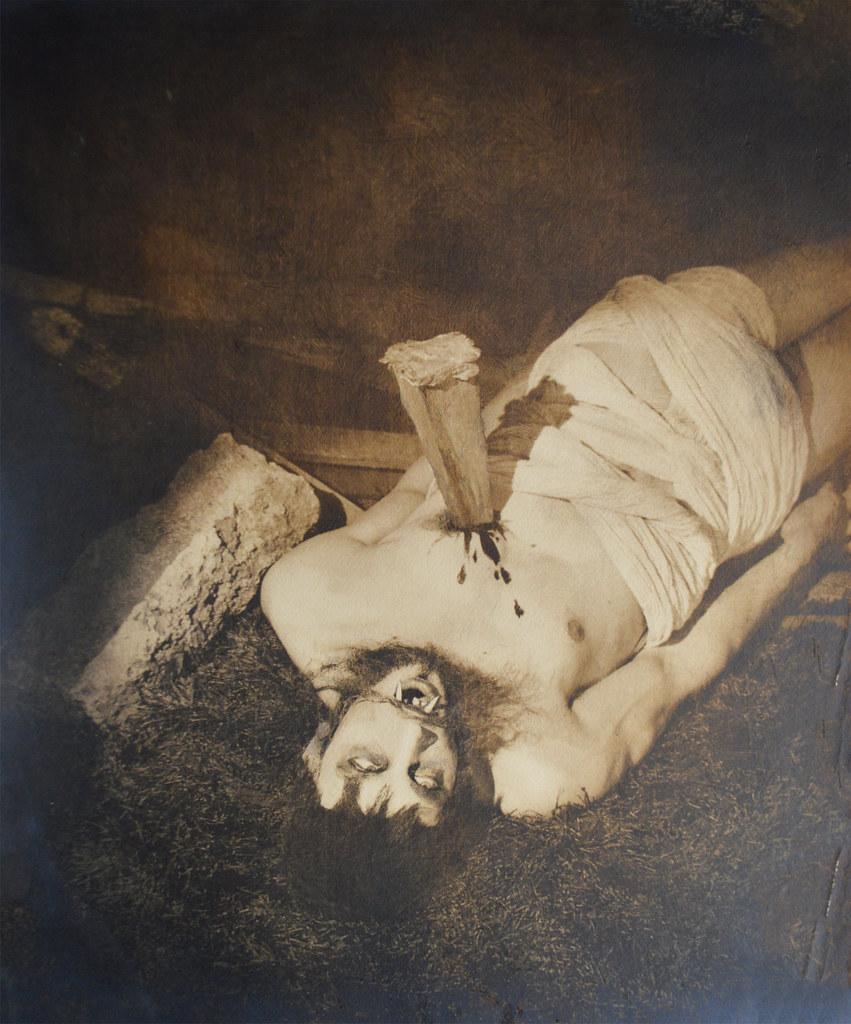 The Vampire's Retribution, 1928
The Vampire's Retribution, 1928
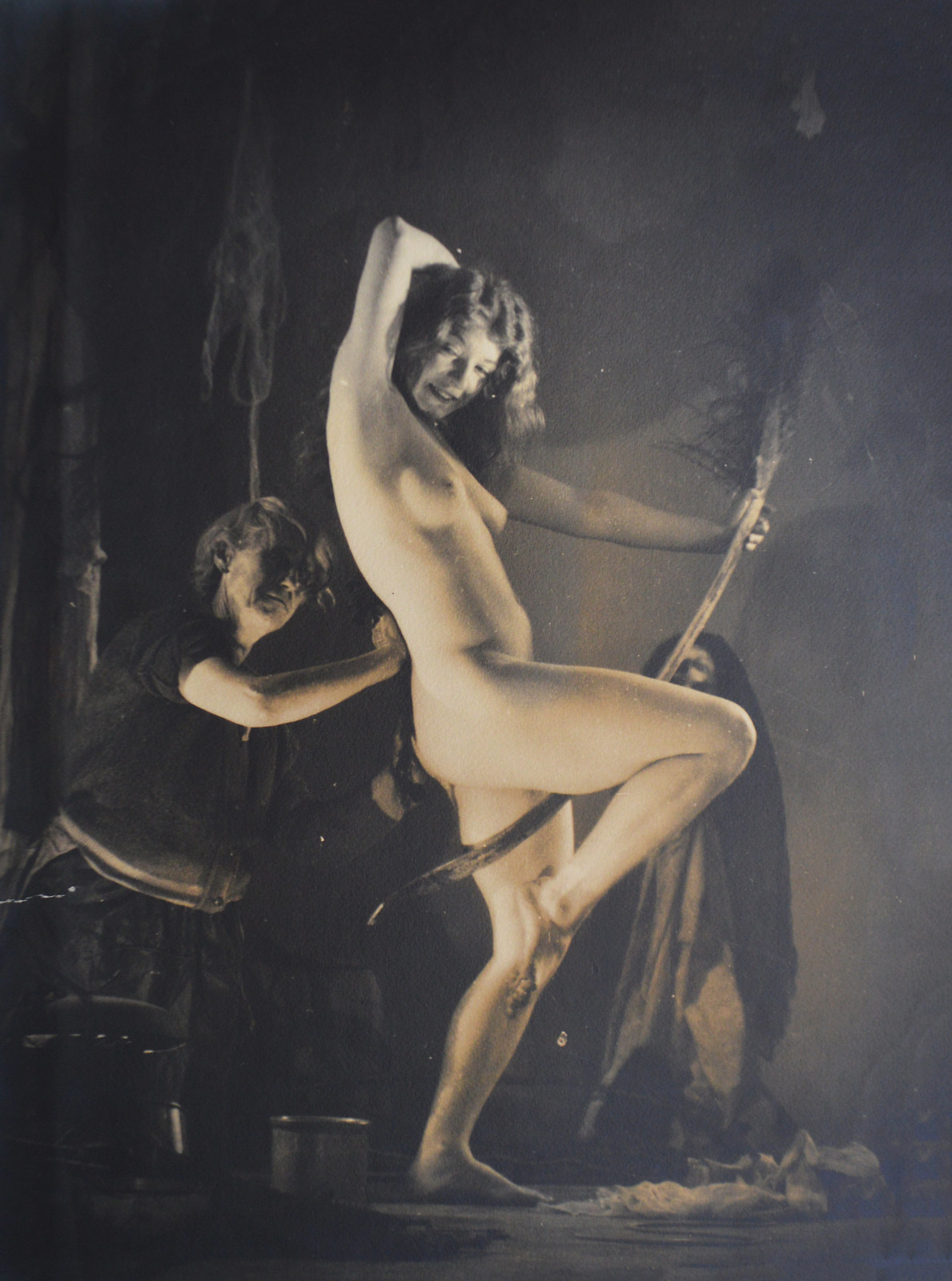 Preperation For The Sabbot, 1930
Preperation For The Sabbot, 1930
 The Old Hag, 1928
The Old Hag, 1928
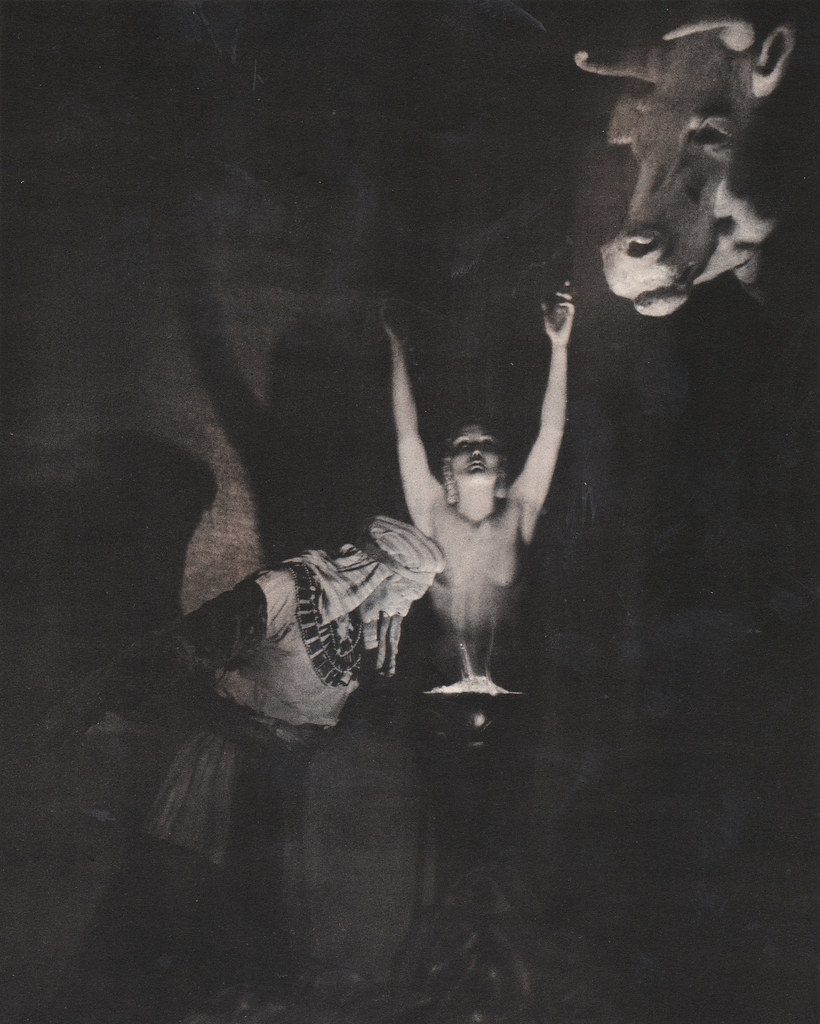 The Worship of Isis, The Moon Goddess, 1924
The Worship of Isis, The Moon Goddess, 1924
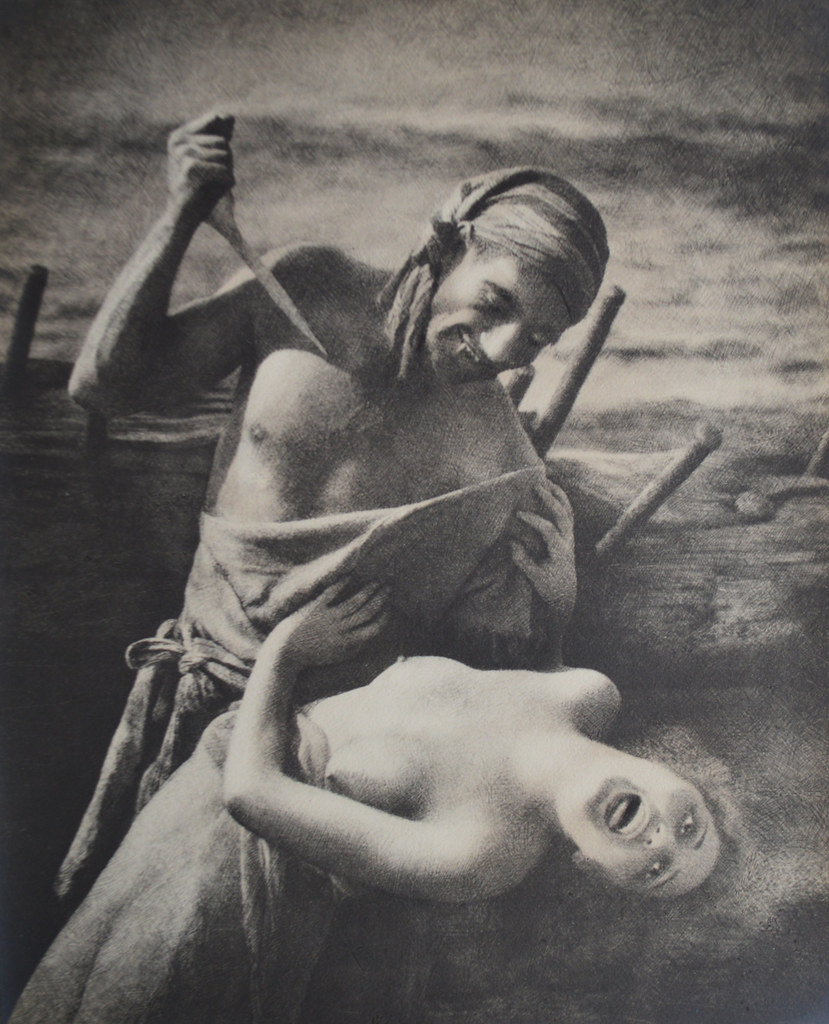 The Spanish Main, 1932
The Spanish Main, 1932
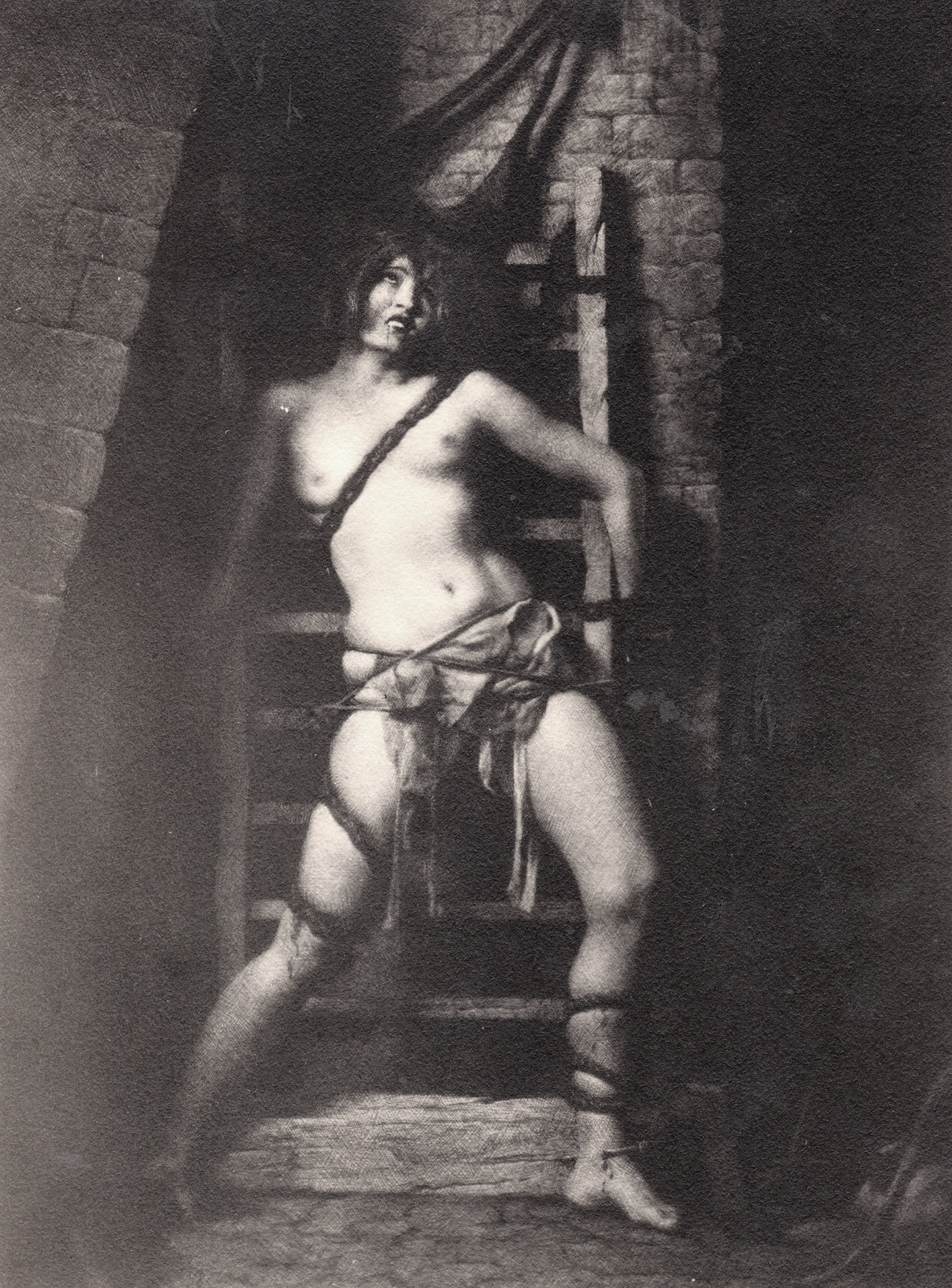 A Spider Torture
A Spider Torture
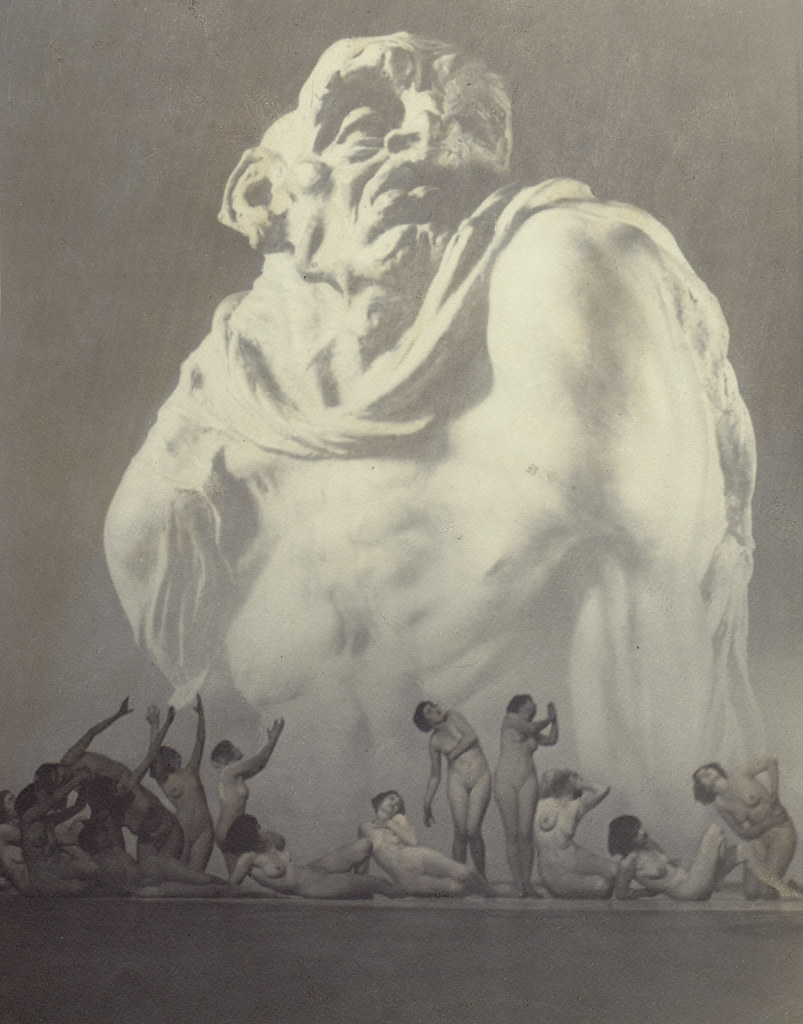 Beelzebub, 1926
Beelzebub, 1926
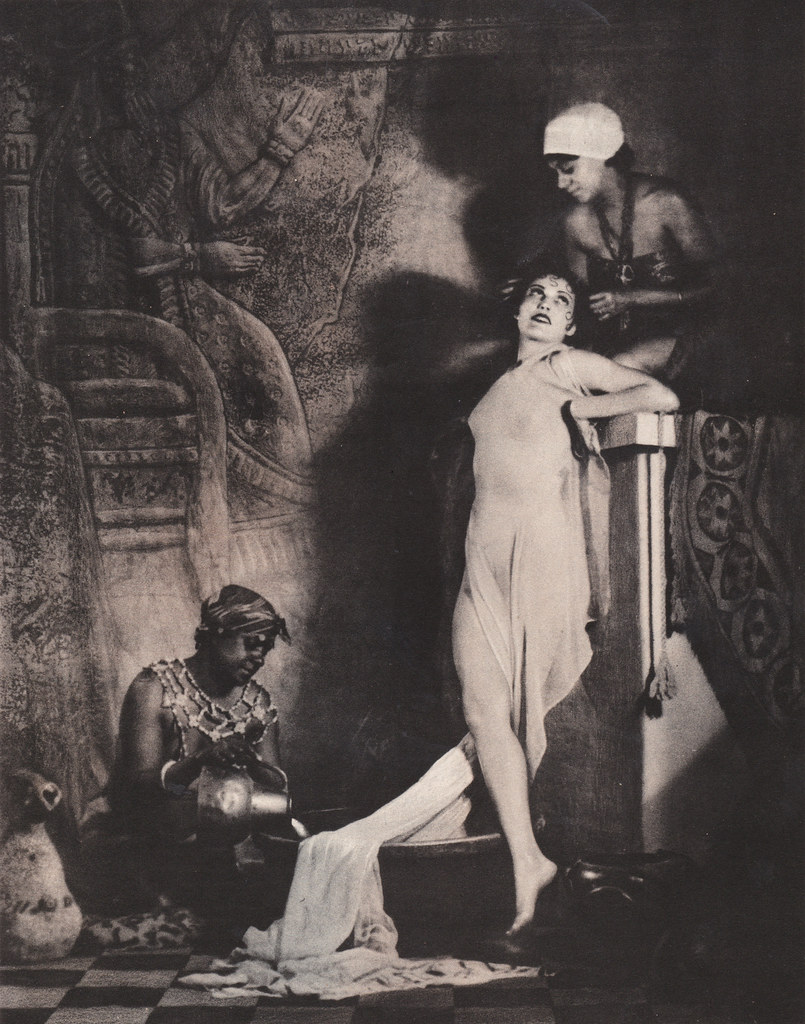 Jezebel, 1924
Jezebel, 1924
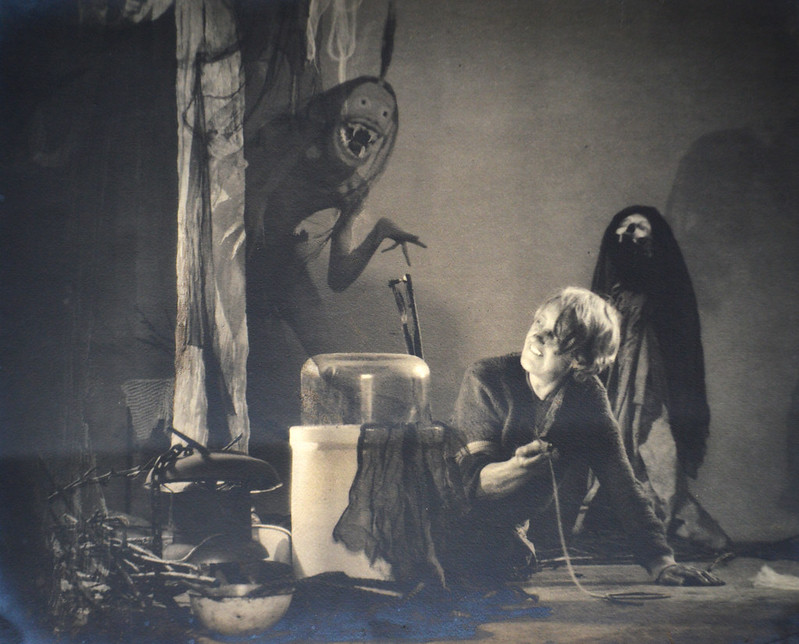 The Old Hag With Incubus, 1928
The Old Hag With Incubus, 1928
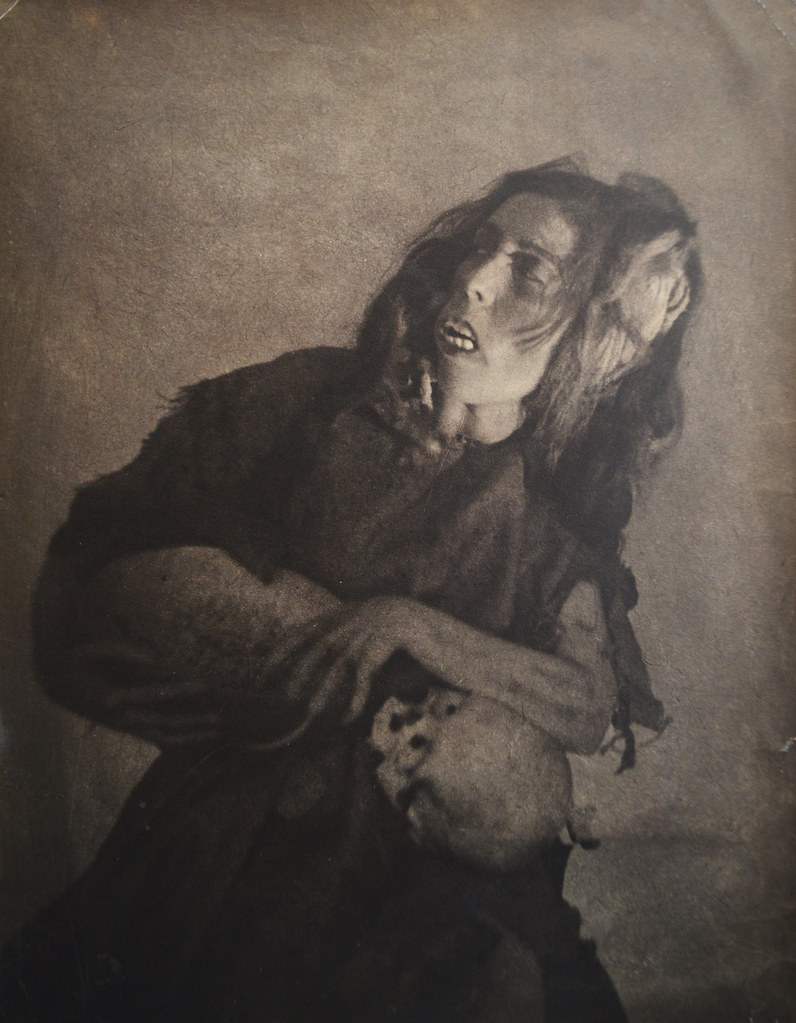 The Old Hag With Skull, 1926
The Old Hag With Skull, 1926
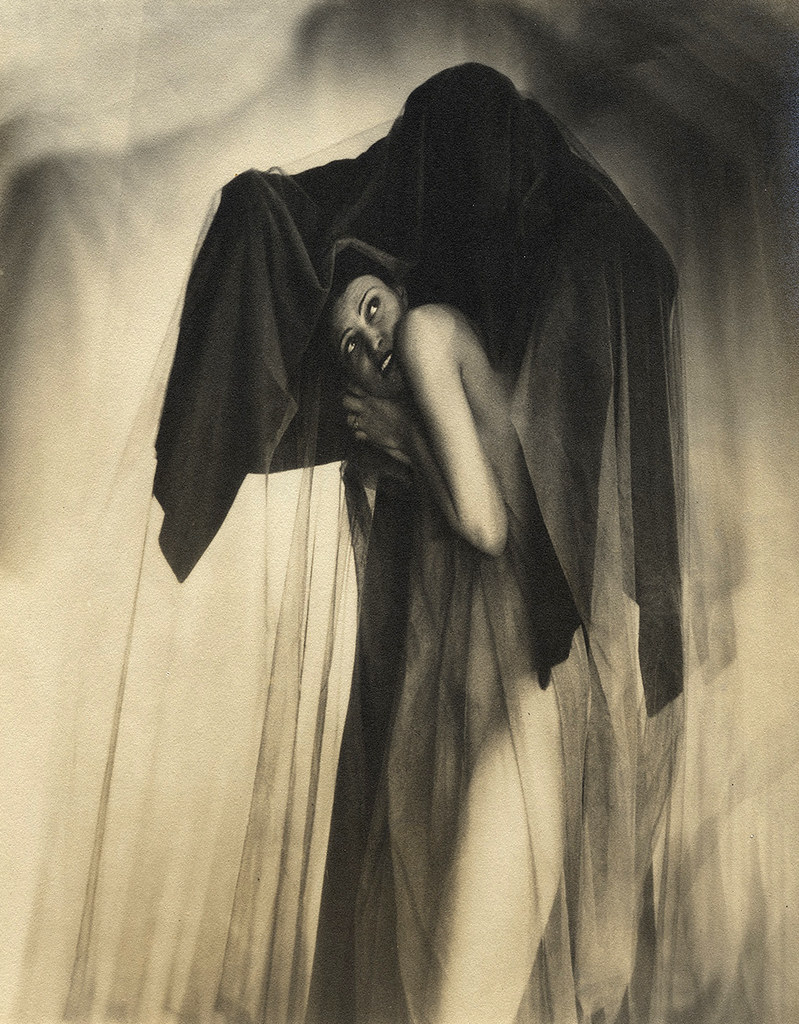 Fear
Fear
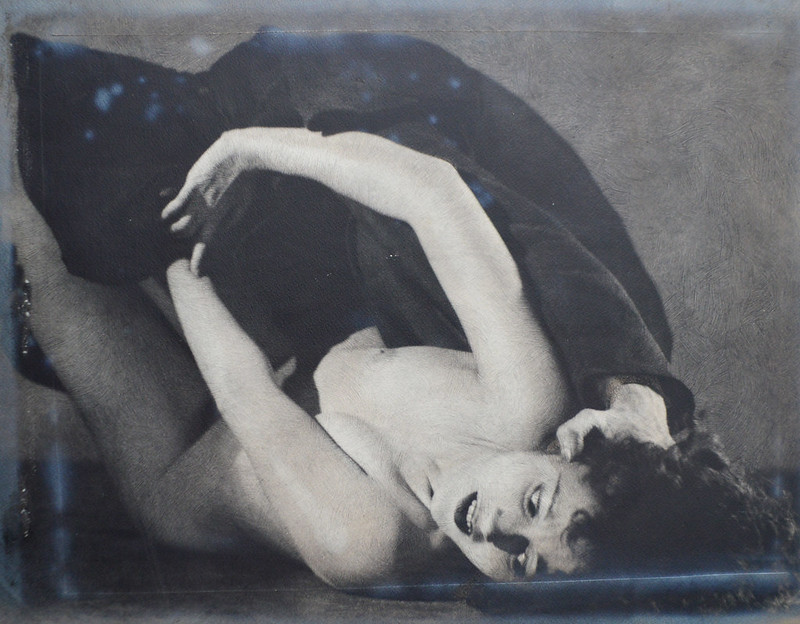 The Initiation Of A Young Witch, 1928
The Initiation Of A Young Witch, 1928
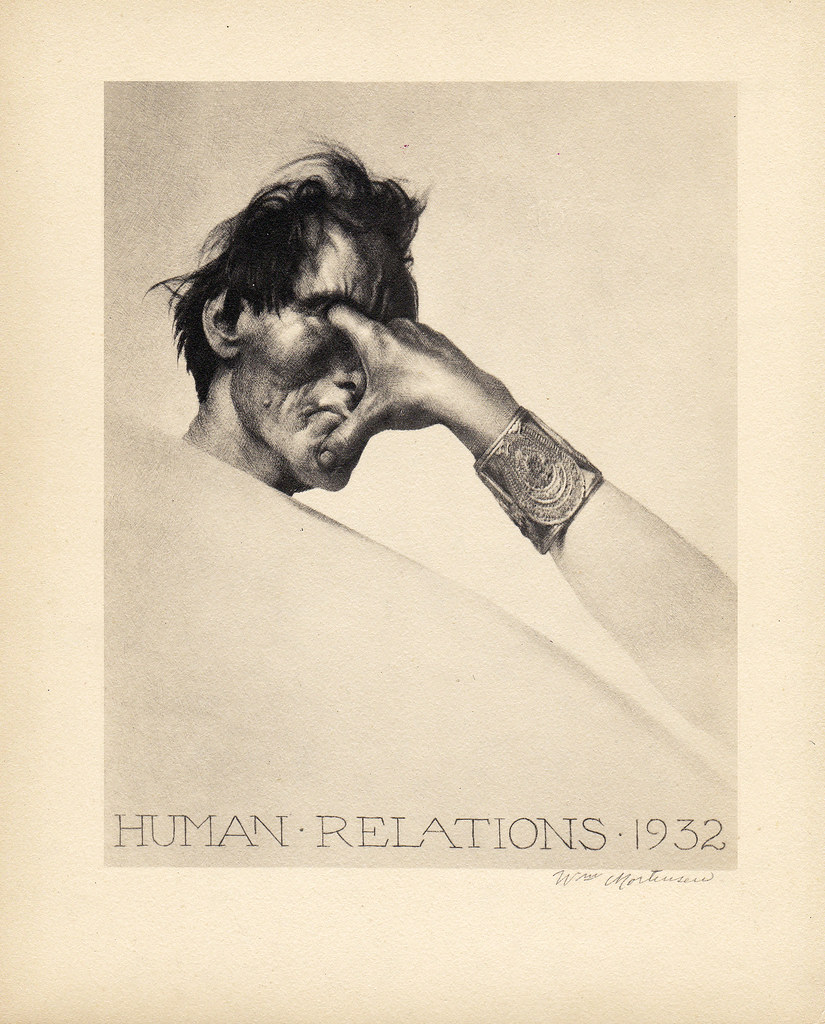 Human Relations, 1932
Human Relations, 1932
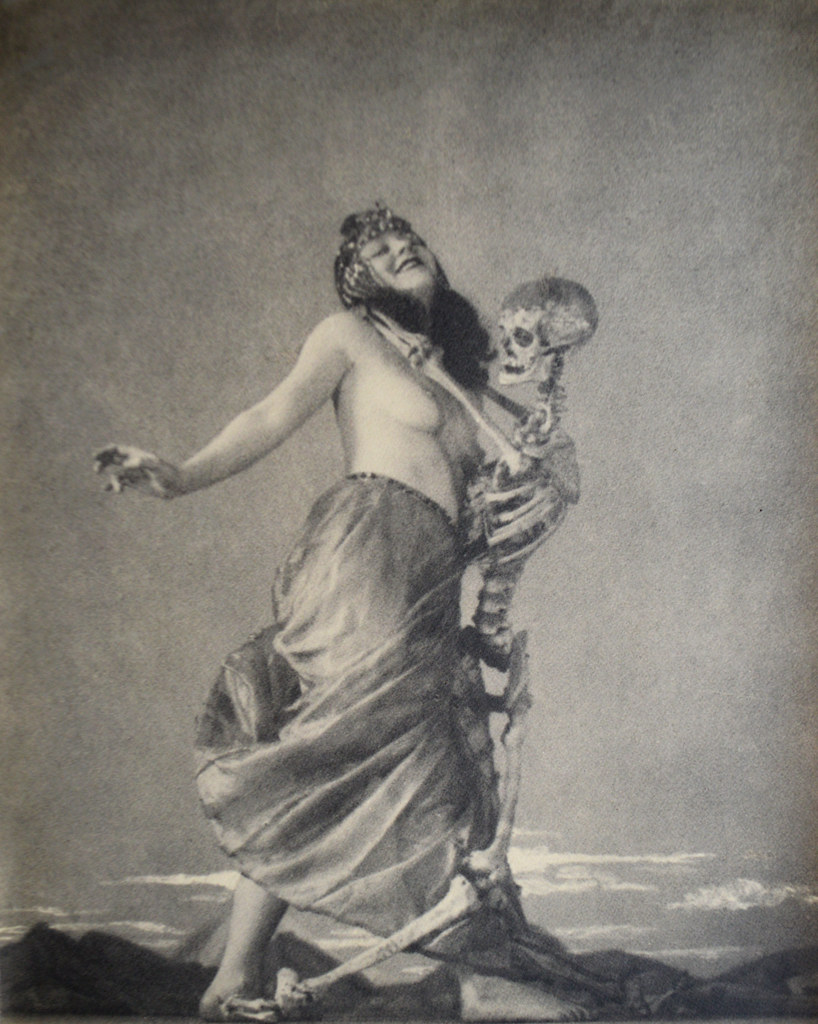 In Missa Interfectionis, 1928
In Missa Interfectionis, 1928
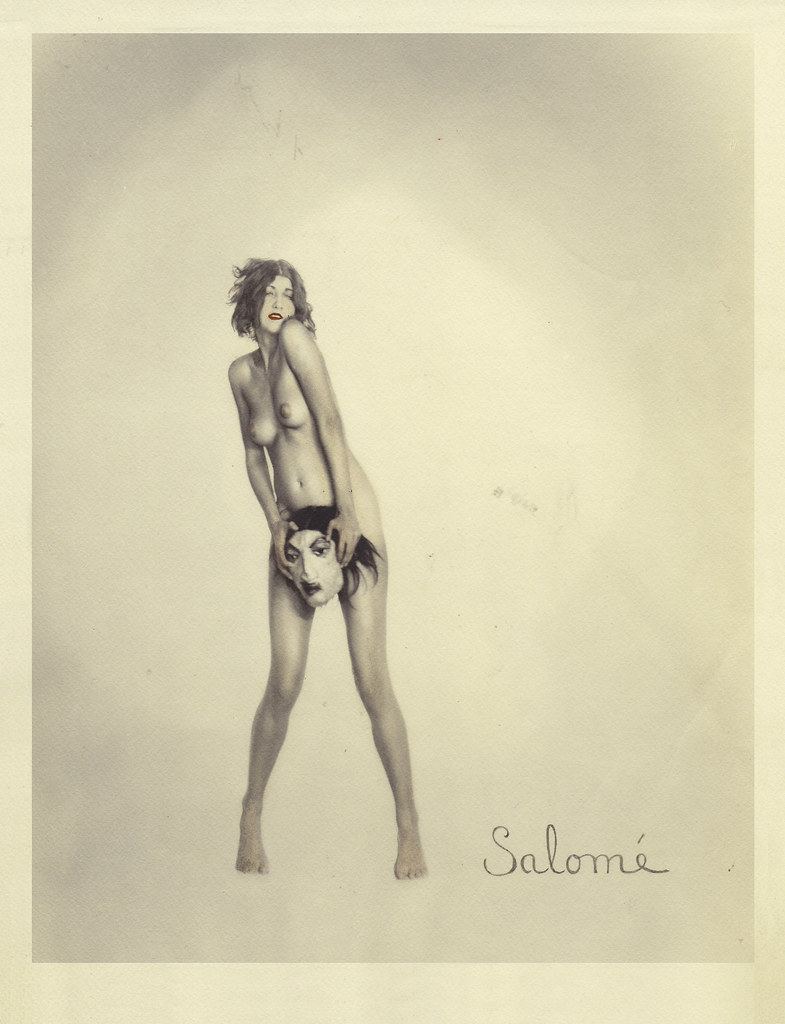 Salome, 1926
Salome, 1926
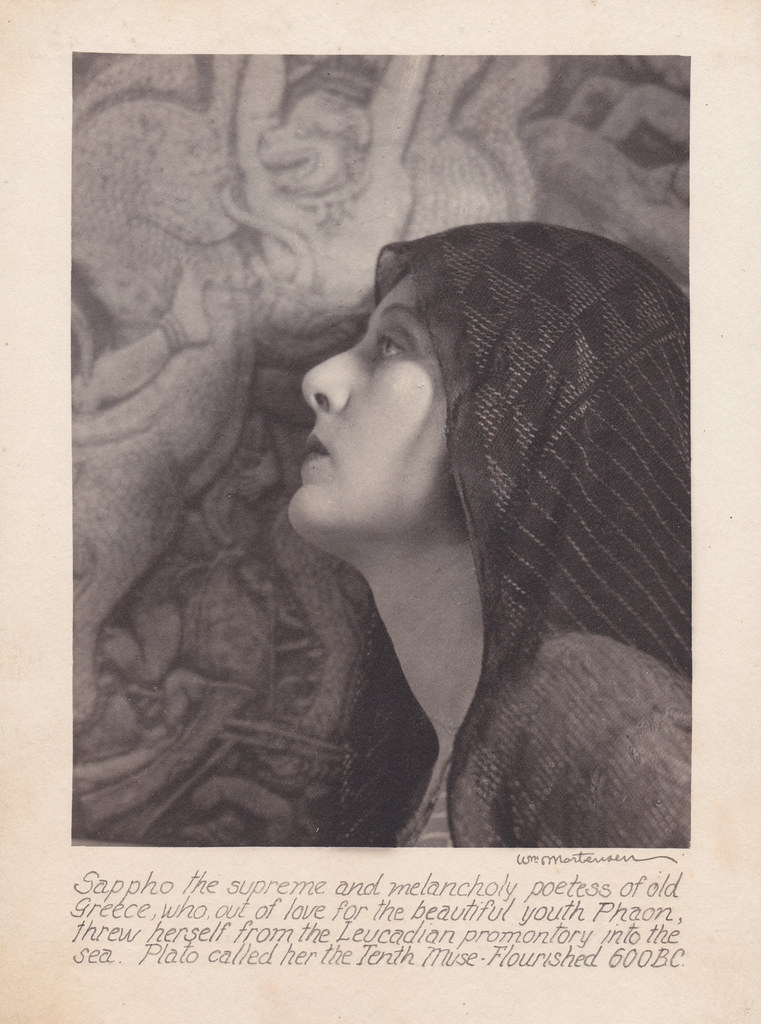 Sappho, 1926
Sappho, 1926
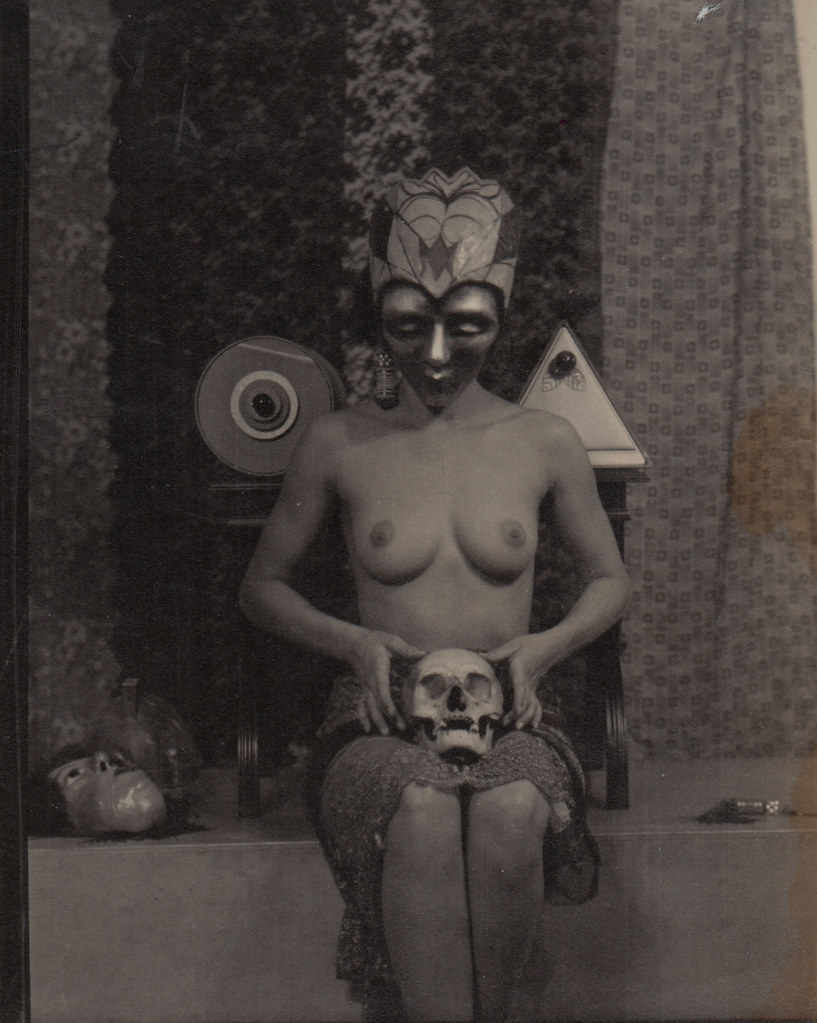 Masked Nude with Skull, 1926
Masked Nude with Skull, 1926
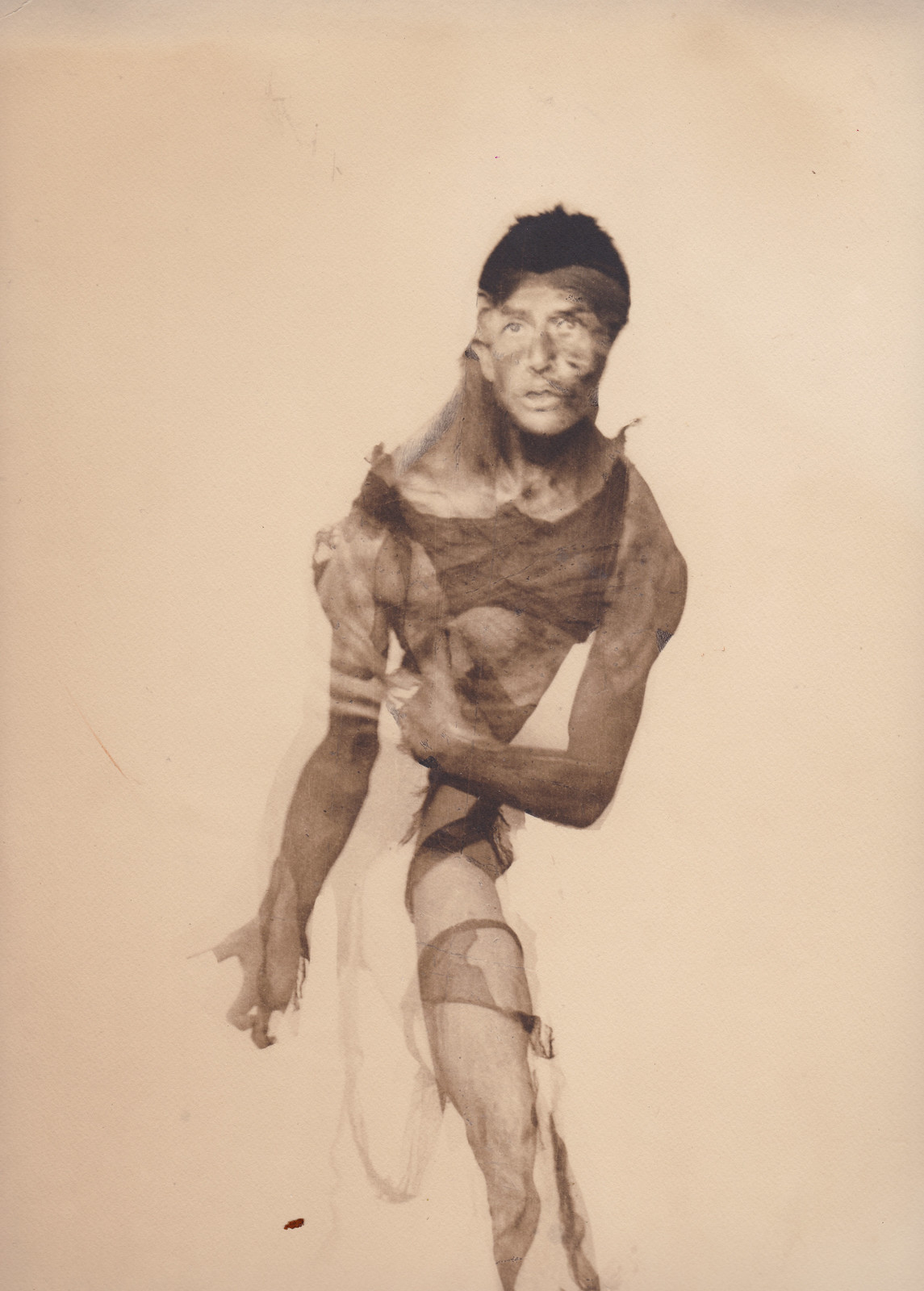 The Shrapnel, 1928
The Shrapnel, 1928
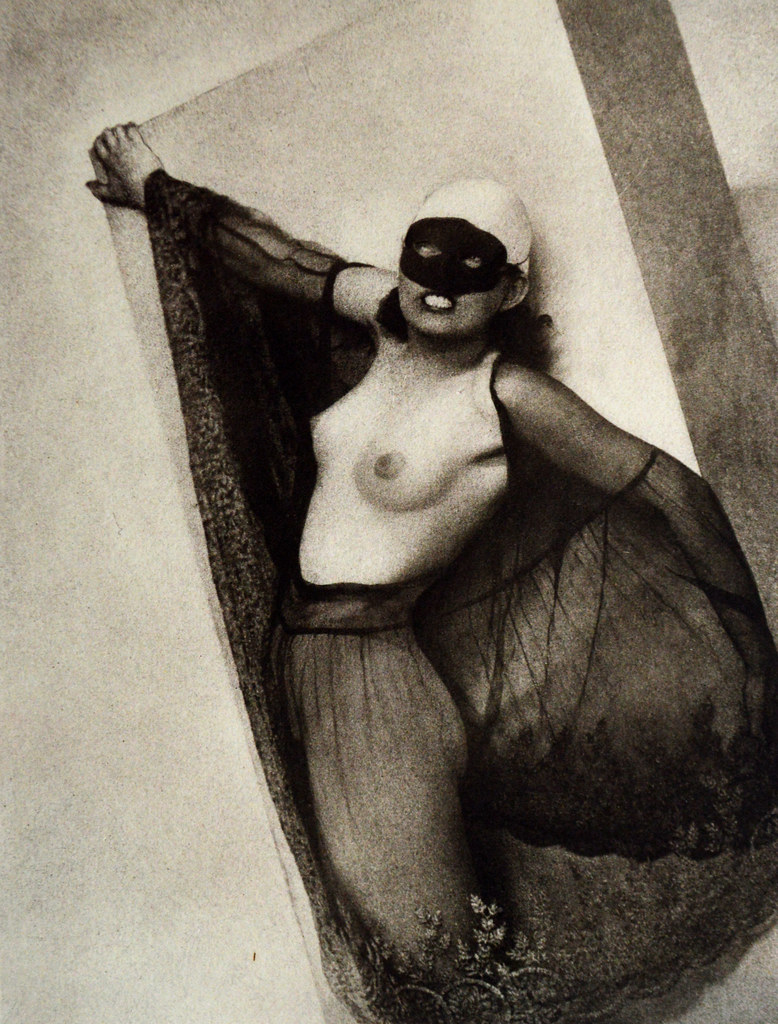 Caprice Vanois, 1926
Caprice Vanois, 1926
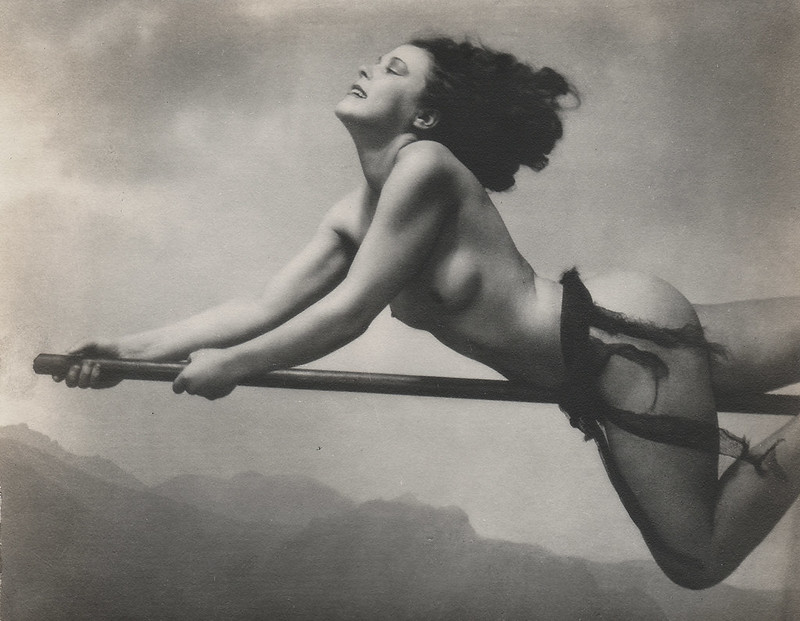 Witch On Broom, 1928
Witch On Broom, 1928
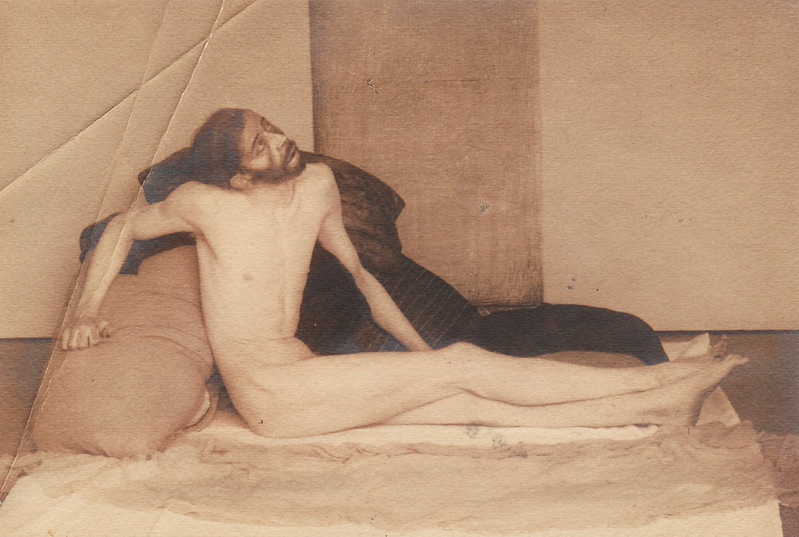 Untitled, 1924
Untitled, 1924
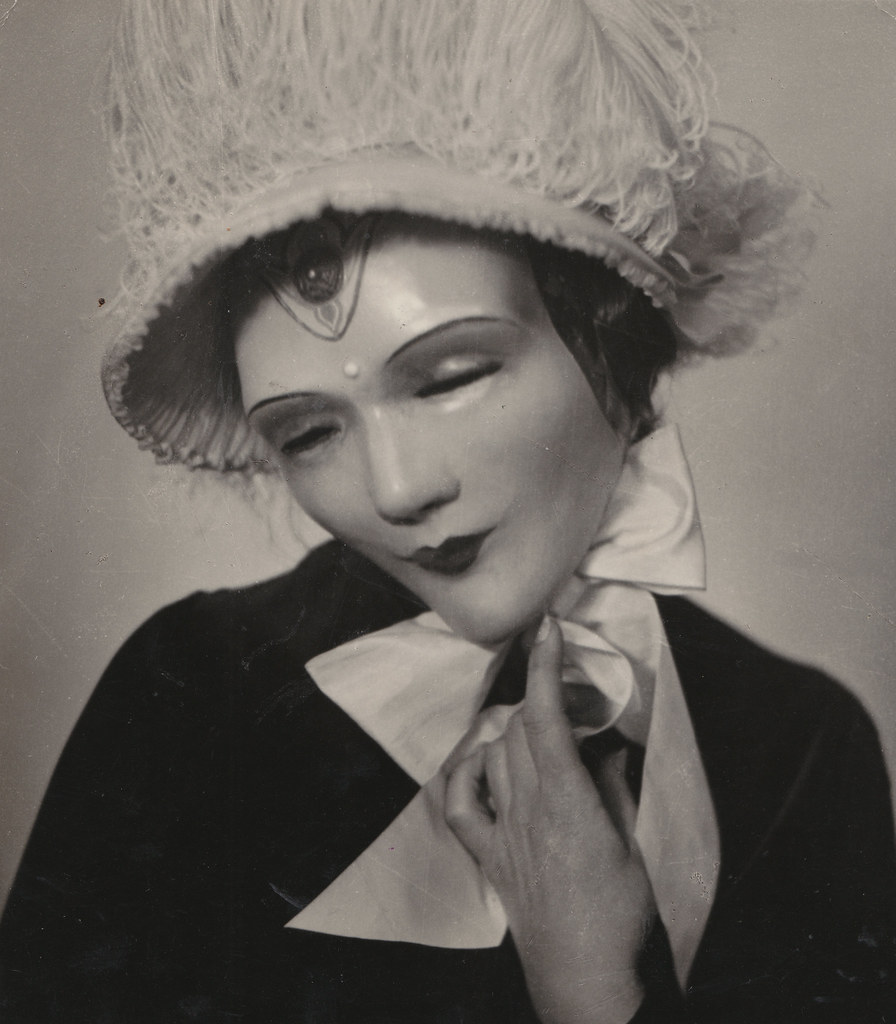 Masked Woman, 1926
Masked Woman, 1926
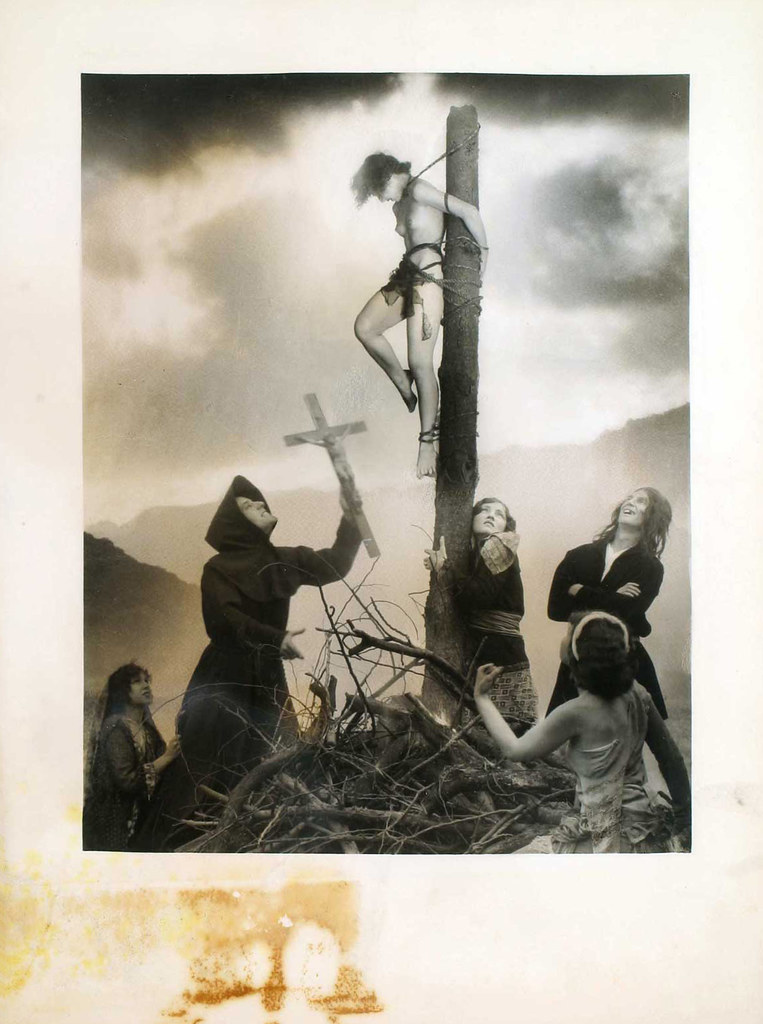 Female Crucifixion
Female Crucifixion
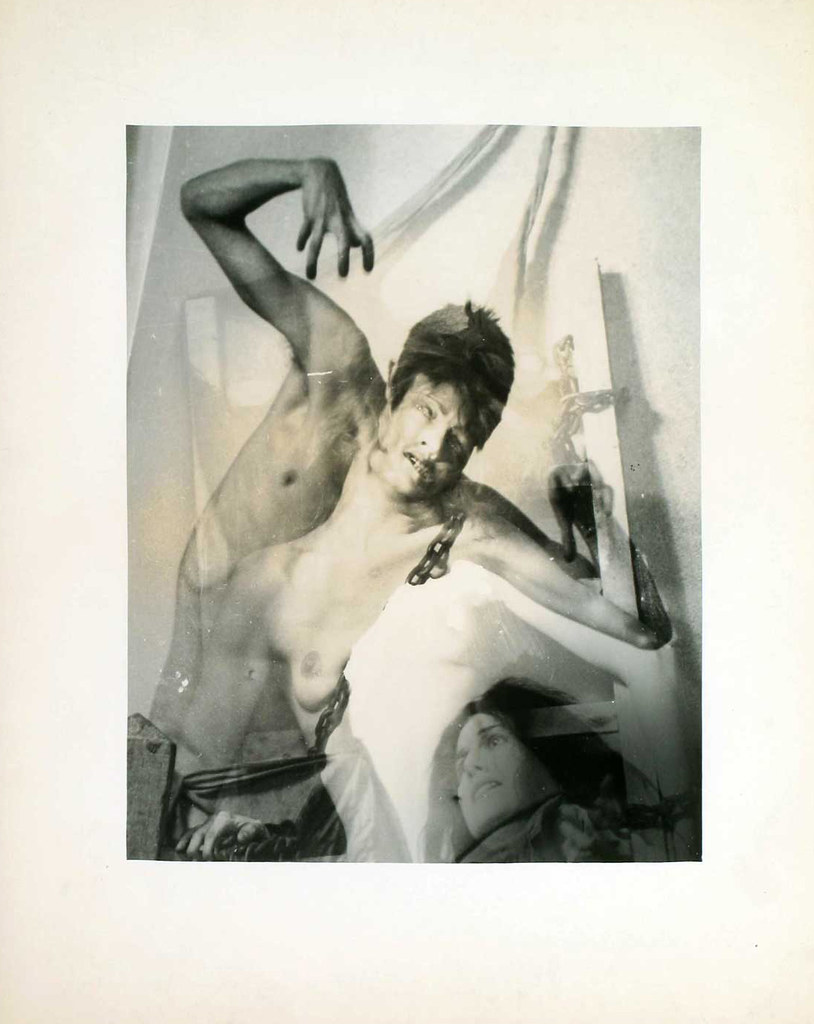 Male Female
Male Female
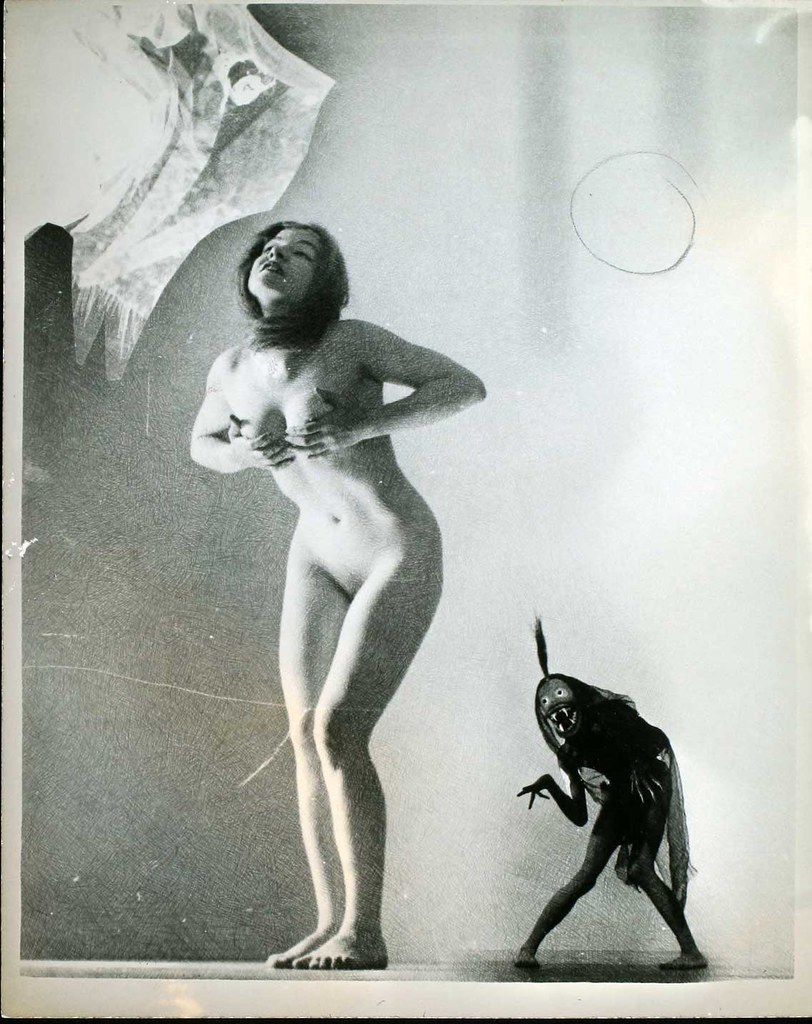 Nude With Small Demon
Nude With Small Demon
 Courtney with Masks, 1926
Courtney with Masks, 1926
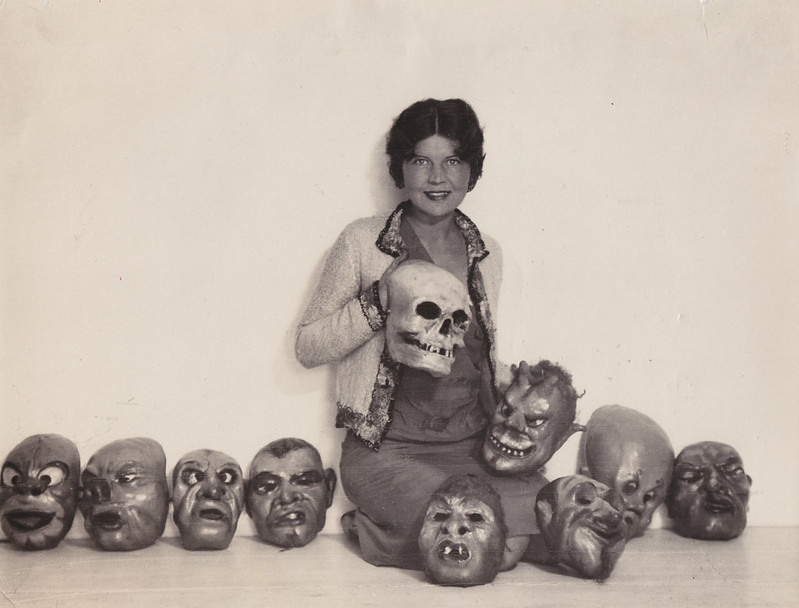 Courtney Crawford with Masks, 1924
Courtney Crawford with Masks, 1924
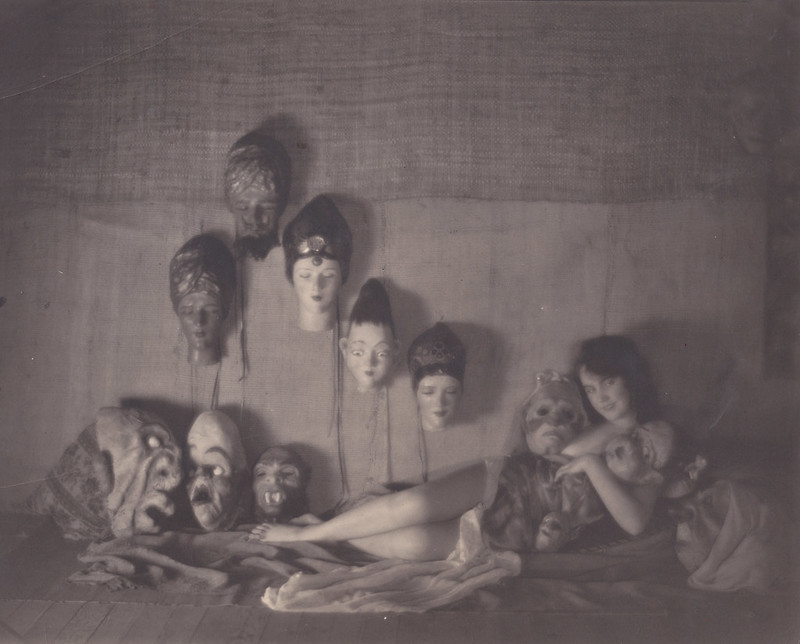 Courtney Crawford with Masks, 1926
Courtney Crawford with Masks, 1926
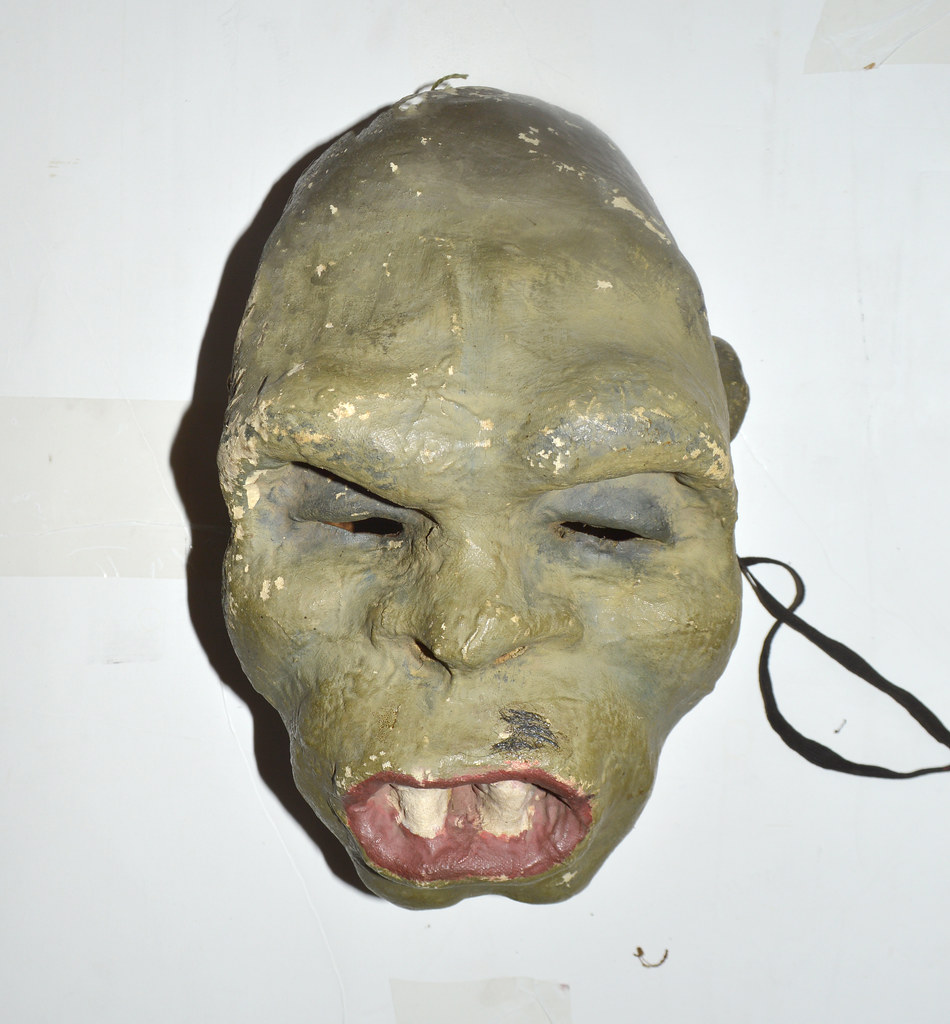 Ghoul Mask
Ghoul Mask
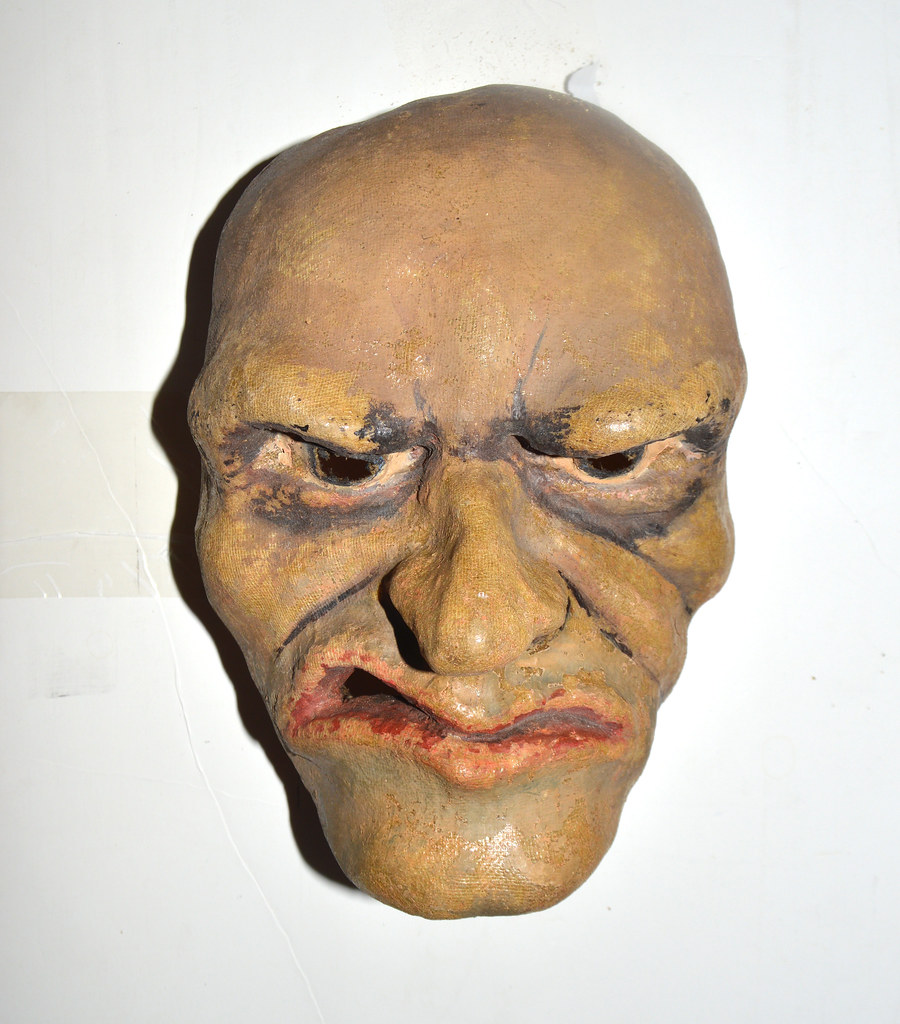 Face Mask
Face Mask
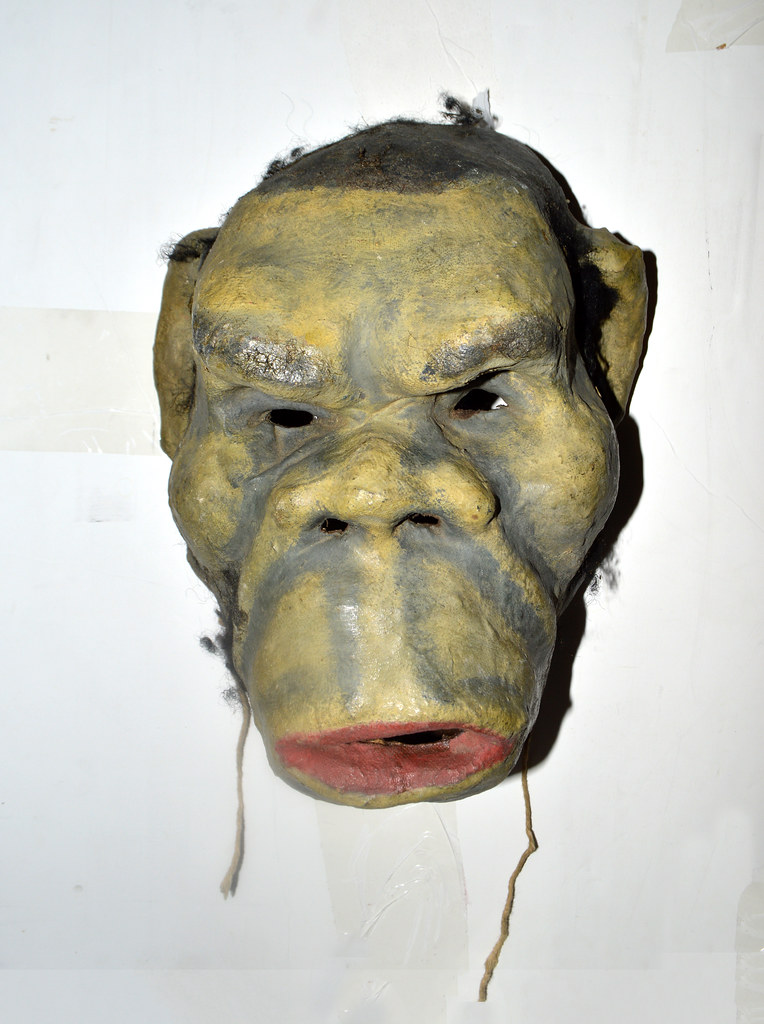 Gorilla Mask
Gorilla Mask
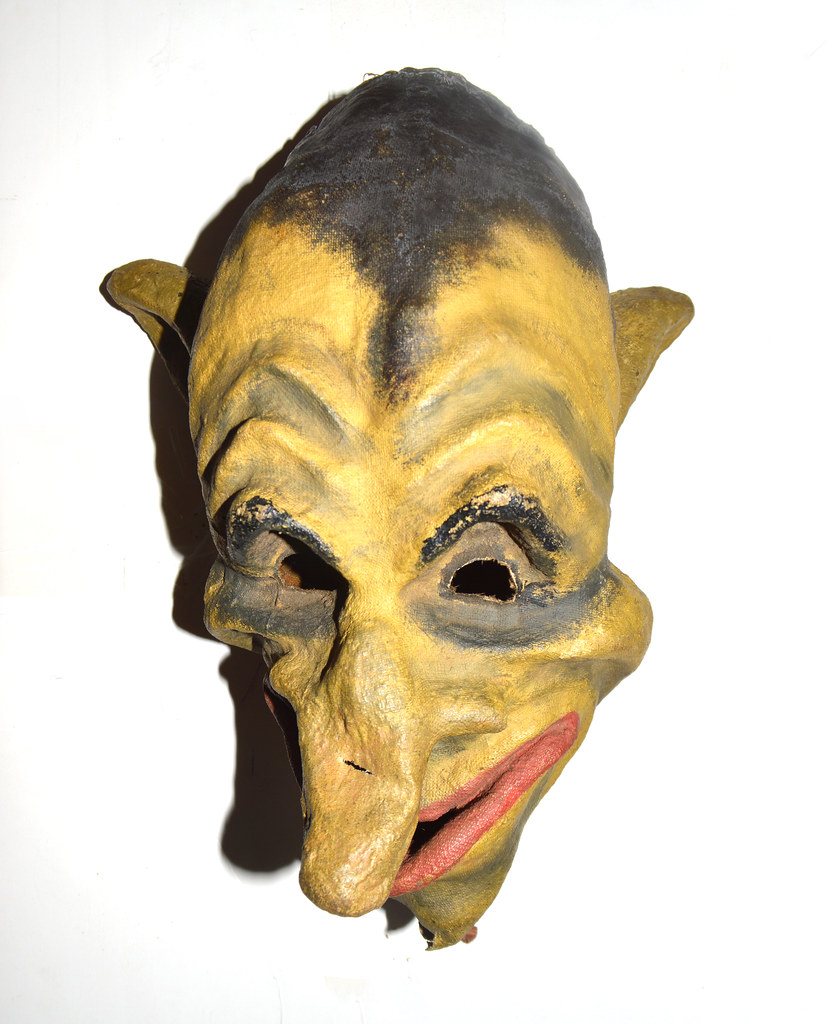 Demon Mask
Demon Mask
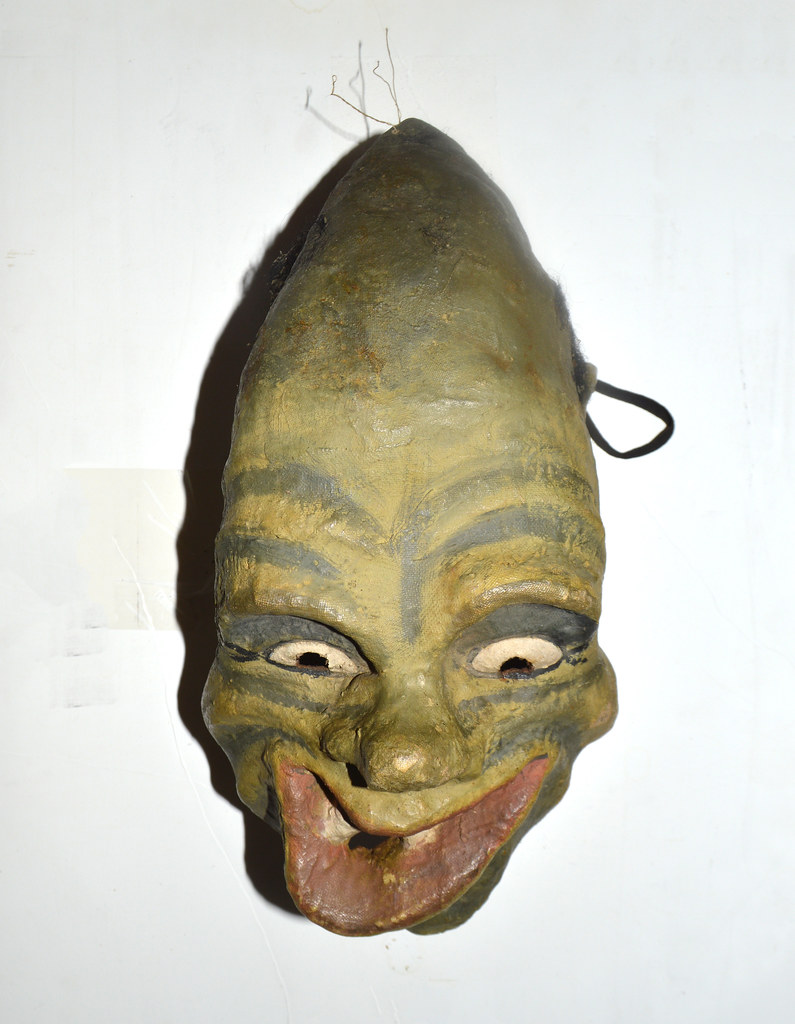 Imp Mask
Imp Mask
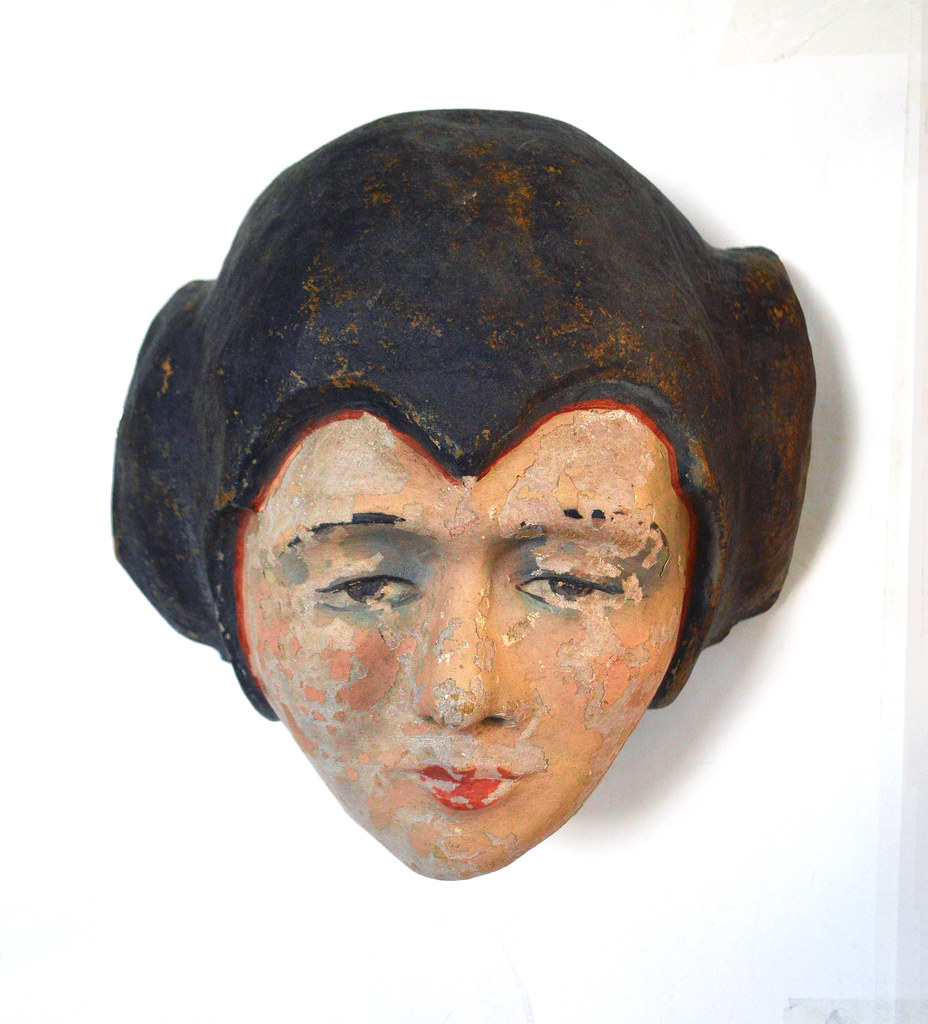 Faye Wray Mask
Faye Wray Mask
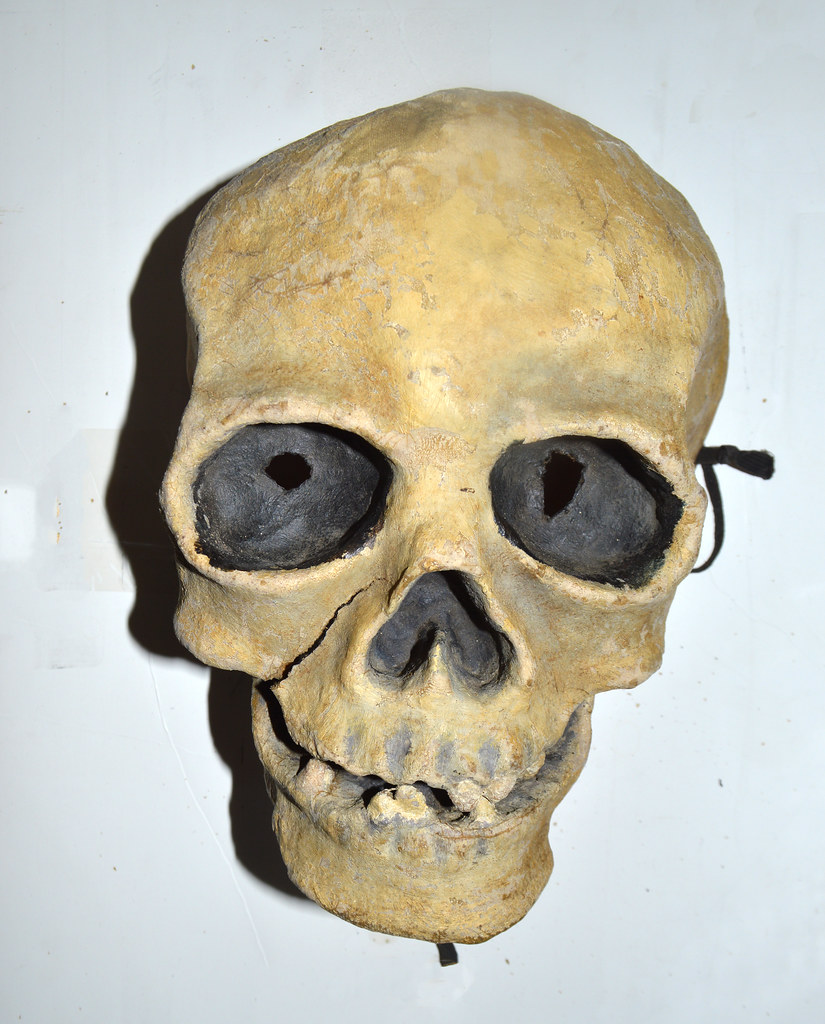 Skull Mask
Skull Mask
"Mortensen began his photographic career taking portraits of Hollywood actors and film stills. In 1931 he moved to the artist community of Laguna Beach, California, where he opened a studio and the William Mortensen School of Photography.
He preferred the pictorialism style of manipulating photographs to produce romanticist painting-like effects. The style brought him criticism from straight photographers of the modern realist movement and, in particular, he carried on a prolonged written debate with Ansel Adams.
His arguments defending romanticist photography led him to be "ostracized from most authoritative canons of photographic history." In an essay, Larry Lytle wrote, "Due to his approach—both technically and philosophically in opposition to straight or purist adherents — he is amongst the most problematic figures in photography in the twentieth-century... historians and critics have described his images as "...anecdotal, highly sentimental, mildly erotic hand-colored prints...", "...bowdlerized versions of garage calendar pin-ups and sadomasochist entertainments...", "...contrived set-ups and sappy facial expressions...", and Ansel Adams variously referred to Mortensen as the "Devil", and "the anti-Christ." In addition, the more realistic photojournalism emerging from World War II correspondents, and carried in national news magazines, caused Mortensen's more posed and contrived photos to fade from the public mind. He was largely forgotten by the time of his death in 1965." - quote source
"Mortensen’s methods often made it hard to distinguish whether the results were photographs or not. He used traditional printmaking techniques, such as bromoiling, and developed many of his own. He would create composite images, scratch, scrape and draw on his prints, then apply a texture that made them look like etchings, thereby disguising his manipulations. Consequently, every print was unique. Ultimately, Mortensen’s aim was to create something that, for all intents and purposes, appeared to be a photograph, yet portrayed scenes so fantastic they caused wonder and astonishment in the viewer." - quote source
Several masks seen in Mortensen's photographs were used in the Todd Browning directed silent film "West of Zanzibar" starring Lon Chaney from 1928. The film can be viewed in its entirety at archive.org
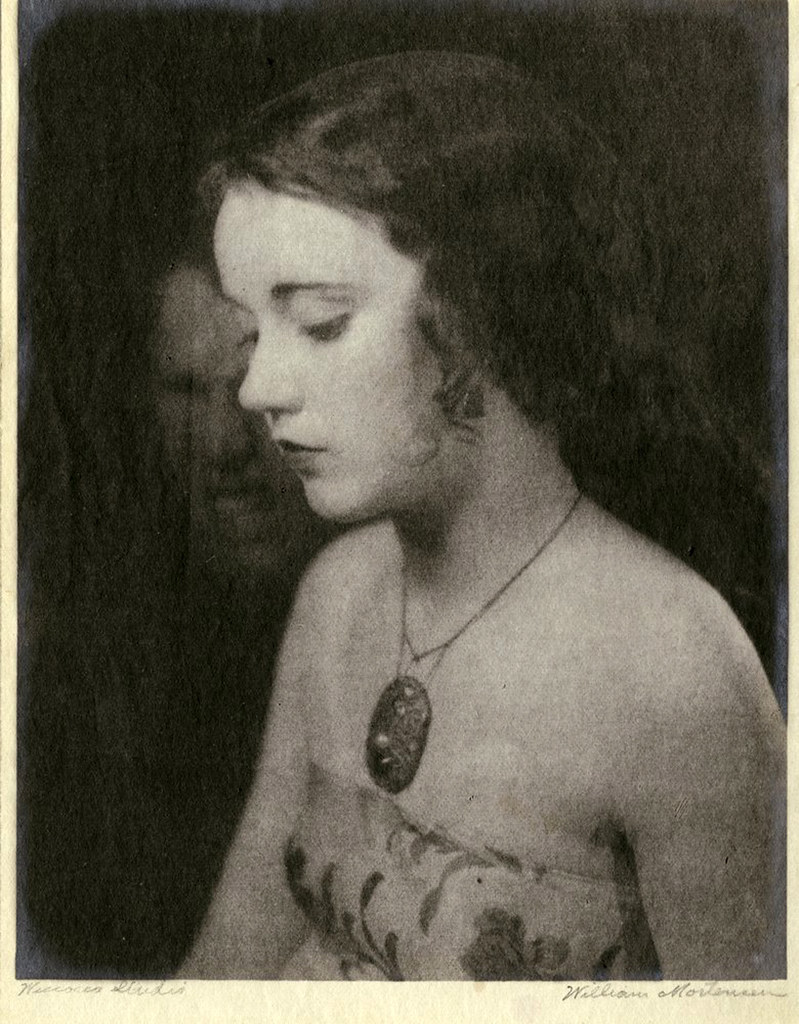 Portrait of Fay Wray, 1921-22
Portrait of Fay Wray, 1921-22
"In the 1920s, Mortensen was living in Utah when he met Fay and her older sister, Willow. When the girls moved to Los Angeles, he accompanied them as Fay’s chaperon and Willow’s fiance. However, on the train ride to California, he spoke of his romantic feelings toward Fay, saying he was more interested in her than Willow. Fay later admitted, ” I felt odd, as old as a fourteen-year-old could feel. I felt happy that he admired me; I felt guilty that he did. The train rushed on and my face felt hot. I stared at the pattern in the combing jacket. To hear that he had not cared for my sister, as my mother had said, made me feel awful, even though I liked hearing what he had to say about me. I was feeling an appreciation of myself beyond what I had ever felt; at the same time, it was terribly uncomfortable to feel so old.”
While in Hollywood, Mortensen rented the Wetzel studio on a Sunday, where he spent a couple of hours taking photos of Fay in various dresses. On a separate occasion, he took her to the beach where he shot risque photos of her barely wearing any clothing at all.
As one might expect, Mortensen and Willow’s “relationship” didn’t last. Fay’s mother, Elvina, became convinced that Mortensen had sexually abused Fay. After settling in Los Angeles, Elvina demanded to see all of the glass plates he had taken of her daughter. Mortensen complied and Elvina began shattering all of them (except this one which was somehow overlooked). Years later, Faye claimed that there was no sexual abuse at all, though she admitted that on one occasion, he “ran his hand over my dress, feeling the shape of my breasts.”" - quote and image taken from the Bizarre Los Angeles tumblr.
A documentary on Mortensen titled "Monsters and Madonnas" was shared by Stephen Romano on Vimeo below..
monstersandmadonnas from stephen romano on Vimeo.
Stephen Romano has collected and curated a fantastic collection of William Mortensen's works in recent years, you can find them at www.whmortensen.com
I end this post with a quote from Stephen Romano that perfectly summarizes the artist..
"Mortensen was a master, master at lighting, master at printing, master at posing the model. Most of all he was a visionary who understood that the camera has it's limits, and not to be enslaved by those limits but rather to invent one's own technique to perpetuate the artist's vision."
Feral House recently published a book on William Mortensen titled "AMERICAN GROTESQUE The Life and Art of William Mortensen" available directly from Feral House here.
You can also find a book on William Mortensen titled "The Command To Look, A Master Photographer’s Method for Controlling the Human Gaze" from Feral House.
It is an honor to share with you the following works by the great William Mortensen. Many of the following images have not been shown publicly before and were taken from the original prints exclusively for Monster Brains by Stephen Romano. Also included here are original masks designed by Mortensen that were photographed by Stephen from his personal collection. He has provided a wealth of incredibly high resolution and beautiful copies of many of William Mortensen's greatest works that I share with you below, enjoy.
 Ho Ho Off To The Sabboth, 1926
Ho Ho Off To The Sabboth, 1926 A Tantric Priest, 1930
A Tantric Priest, 1930 L'amour, 1930
L'amour, 1930 The Incubus, 1924 - 26
The Incubus, 1924 - 26 Belphegor, 1930
Belphegor, 1930 The Vampire's Retribution, 1928
The Vampire's Retribution, 1928 Preperation For The Sabbot, 1930
Preperation For The Sabbot, 1930 The Old Hag, 1928
The Old Hag, 1928 The Worship of Isis, The Moon Goddess, 1924
The Worship of Isis, The Moon Goddess, 1924 The Spanish Main, 1932
The Spanish Main, 1932 A Spider Torture
A Spider Torture Beelzebub, 1926
Beelzebub, 1926 Jezebel, 1924
Jezebel, 1924  The Old Hag With Incubus, 1928
The Old Hag With Incubus, 1928 The Old Hag With Skull, 1926
The Old Hag With Skull, 1926 Fear
Fear The Initiation Of A Young Witch, 1928
The Initiation Of A Young Witch, 1928 Human Relations, 1932
Human Relations, 1932 In Missa Interfectionis, 1928
In Missa Interfectionis, 1928 Salome, 1926
Salome, 1926 Sappho, 1926
Sappho, 1926 Masked Nude with Skull, 1926
Masked Nude with Skull, 1926 The Shrapnel, 1928
The Shrapnel, 1928 Caprice Vanois, 1926
Caprice Vanois, 1926 Witch On Broom, 1928
Witch On Broom, 1928 Untitled, 1924
Untitled, 1924 Masked Woman, 1926
Masked Woman, 1926 Female Crucifixion
Female Crucifixion Male Female
Male Female Nude With Small Demon
Nude With Small Demon Courtney with Masks, 1926
Courtney with Masks, 1926 Courtney Crawford with Masks, 1924
Courtney Crawford with Masks, 1924 Courtney Crawford with Masks, 1926
Courtney Crawford with Masks, 1926 Ghoul Mask
Ghoul Mask Face Mask
Face Mask Gorilla Mask
Gorilla Mask Demon Mask
Demon Mask Imp Mask
Imp Mask Faye Wray Mask
Faye Wray Mask Skull Mask
Skull Mask"Mortensen began his photographic career taking portraits of Hollywood actors and film stills. In 1931 he moved to the artist community of Laguna Beach, California, where he opened a studio and the William Mortensen School of Photography.
He preferred the pictorialism style of manipulating photographs to produce romanticist painting-like effects. The style brought him criticism from straight photographers of the modern realist movement and, in particular, he carried on a prolonged written debate with Ansel Adams.
His arguments defending romanticist photography led him to be "ostracized from most authoritative canons of photographic history." In an essay, Larry Lytle wrote, "Due to his approach—both technically and philosophically in opposition to straight or purist adherents — he is amongst the most problematic figures in photography in the twentieth-century... historians and critics have described his images as "...anecdotal, highly sentimental, mildly erotic hand-colored prints...", "...bowdlerized versions of garage calendar pin-ups and sadomasochist entertainments...", "...contrived set-ups and sappy facial expressions...", and Ansel Adams variously referred to Mortensen as the "Devil", and "the anti-Christ." In addition, the more realistic photojournalism emerging from World War II correspondents, and carried in national news magazines, caused Mortensen's more posed and contrived photos to fade from the public mind. He was largely forgotten by the time of his death in 1965." - quote source
"Mortensen’s methods often made it hard to distinguish whether the results were photographs or not. He used traditional printmaking techniques, such as bromoiling, and developed many of his own. He would create composite images, scratch, scrape and draw on his prints, then apply a texture that made them look like etchings, thereby disguising his manipulations. Consequently, every print was unique. Ultimately, Mortensen’s aim was to create something that, for all intents and purposes, appeared to be a photograph, yet portrayed scenes so fantastic they caused wonder and astonishment in the viewer." - quote source
Several masks seen in Mortensen's photographs were used in the Todd Browning directed silent film "West of Zanzibar" starring Lon Chaney from 1928. The film can be viewed in its entirety at archive.org
 Portrait of Fay Wray, 1921-22
Portrait of Fay Wray, 1921-22"In the 1920s, Mortensen was living in Utah when he met Fay and her older sister, Willow. When the girls moved to Los Angeles, he accompanied them as Fay’s chaperon and Willow’s fiance. However, on the train ride to California, he spoke of his romantic feelings toward Fay, saying he was more interested in her than Willow. Fay later admitted, ” I felt odd, as old as a fourteen-year-old could feel. I felt happy that he admired me; I felt guilty that he did. The train rushed on and my face felt hot. I stared at the pattern in the combing jacket. To hear that he had not cared for my sister, as my mother had said, made me feel awful, even though I liked hearing what he had to say about me. I was feeling an appreciation of myself beyond what I had ever felt; at the same time, it was terribly uncomfortable to feel so old.”
While in Hollywood, Mortensen rented the Wetzel studio on a Sunday, where he spent a couple of hours taking photos of Fay in various dresses. On a separate occasion, he took her to the beach where he shot risque photos of her barely wearing any clothing at all.
As one might expect, Mortensen and Willow’s “relationship” didn’t last. Fay’s mother, Elvina, became convinced that Mortensen had sexually abused Fay. After settling in Los Angeles, Elvina demanded to see all of the glass plates he had taken of her daughter. Mortensen complied and Elvina began shattering all of them (except this one which was somehow overlooked). Years later, Faye claimed that there was no sexual abuse at all, though she admitted that on one occasion, he “ran his hand over my dress, feeling the shape of my breasts.”" - quote and image taken from the Bizarre Los Angeles tumblr.
A documentary on Mortensen titled "Monsters and Madonnas" was shared by Stephen Romano on Vimeo below..
monstersandmadonnas from stephen romano on Vimeo.
Stephen Romano has collected and curated a fantastic collection of William Mortensen's works in recent years, you can find them at www.whmortensen.com
I end this post with a quote from Stephen Romano that perfectly summarizes the artist..
"Mortensen was a master, master at lighting, master at printing, master at posing the model. Most of all he was a visionary who understood that the camera has it's limits, and not to be enslaved by those limits but rather to invent one's own technique to perpetuate the artist's vision."
Feral House recently published a book on William Mortensen titled "AMERICAN GROTESQUE The Life and Art of William Mortensen" available directly from Feral House here.
You can also find a book on William Mortensen titled "The Command To Look, A Master Photographer’s Method for Controlling the Human Gaze" from Feral House.

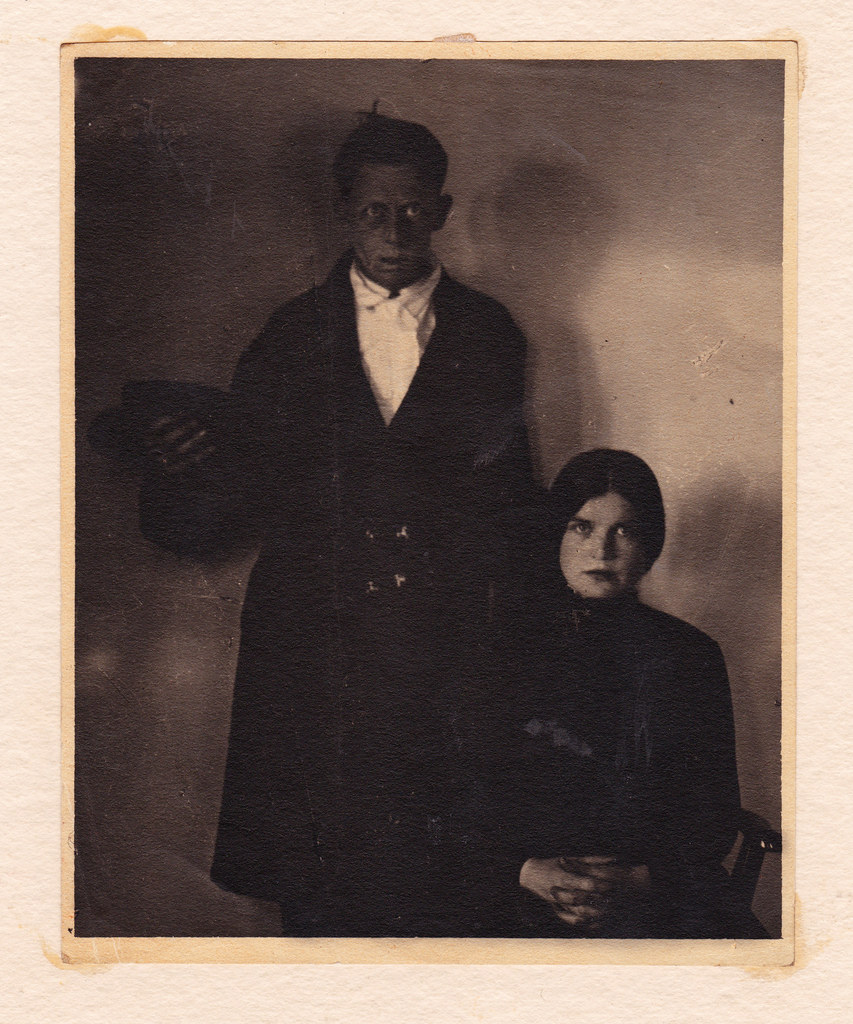
5 comments:
Thank you for this amazing feature on William Mortensen! You have done a great job giving the artist long deserved due respect and putting his integrity in the forefront. Monsterbrains is one of my favorite websites on the internet and you do a service to our spiritual growth by sharing and perpetuating he great works of art you find. Thank you so much!
One of your best posts! Mortensen's work was one of genius. I had read about the Fay Wray story some years ago, but have never seen the existing photo. Keep up the great work!
http://feralhouse.com/american-grotesque/
Amazing post! Thank you for introducing me to Mortensen! I'm blown away. Never stop this blog!!
Some incredible images here. His imagination was fabulous.
Post a Comment